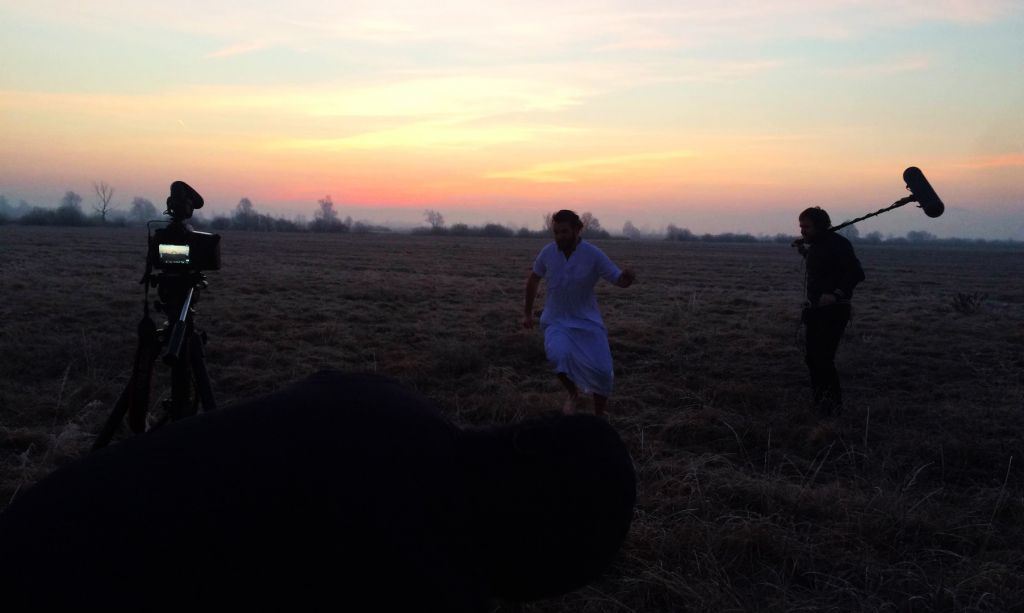The European Competition '17
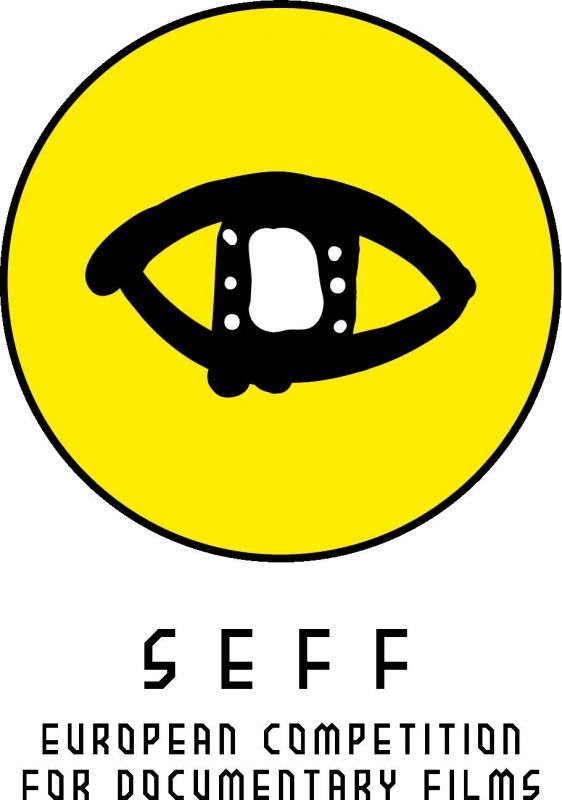
This year’s European Competition, which is yet again marked by the bar set very high, will feature 26 productions by filmmakers from 15 countries. The films were all finished between 2016 and 2017. The films’ diverse themes reflect the multi-layered issues of today’s world. All of the titles deserve attention. They are unique, bold in their content, and often cross the boundaries of classic documentary cinema. As always, screenings of the competition films will be followed by discussions with their authors, which is a constant element of the festival. A direct meeting between viewer and director is always an intellectually stimulating experience. The competition includes five Polish and five German films, four Italian productions, three from Spain, two from Austria and France, as well as one from Hungary, Norway, the UK Slovenia, Switzerland, Cyprus, and Latvia. There will also be numerous co-productions, which include the United States and Colombia.
Selectors
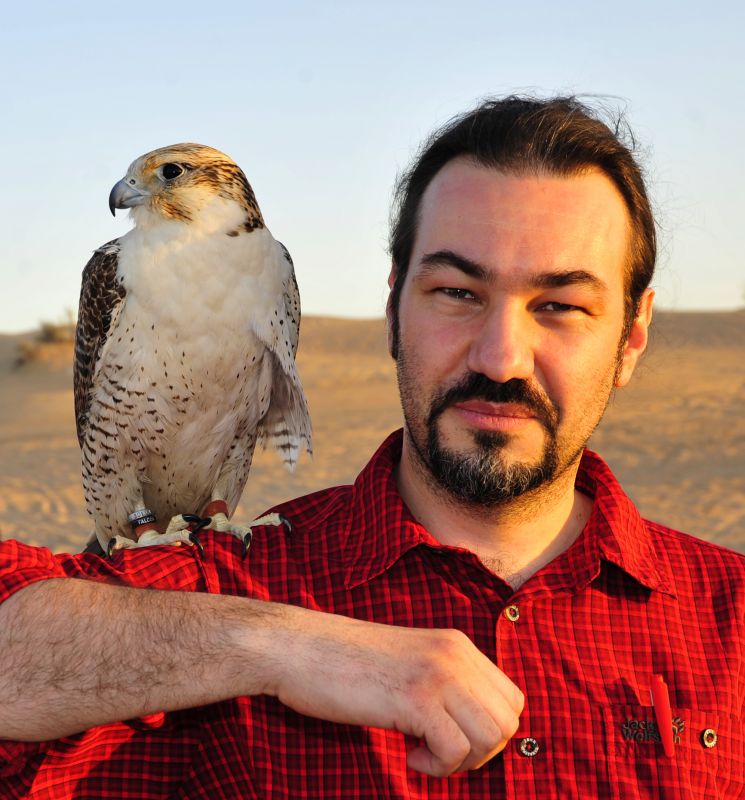
|
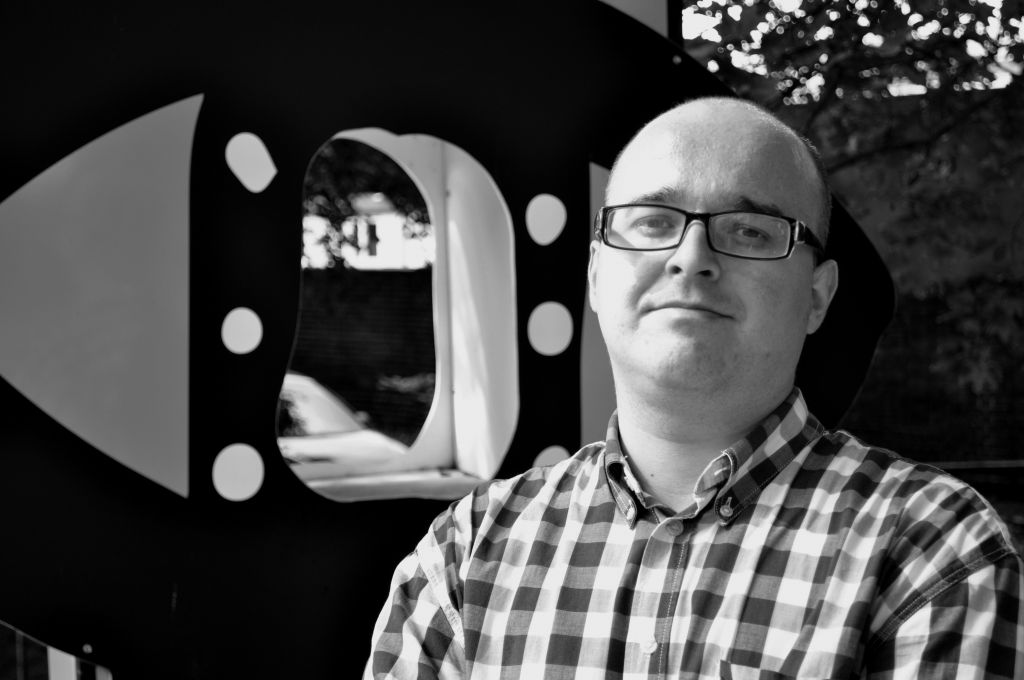
|
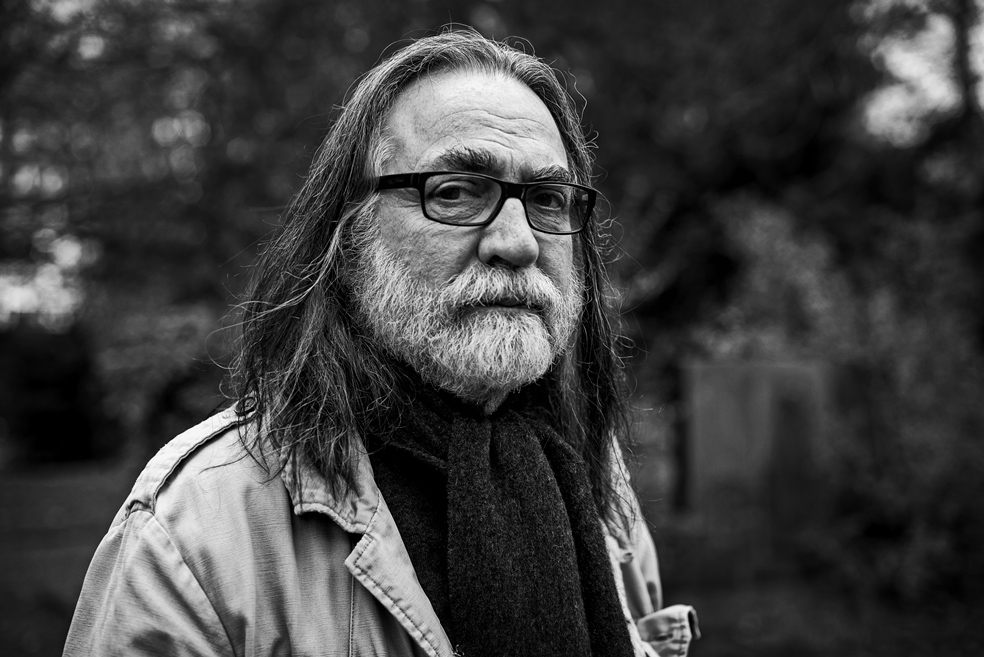
|
| Bartosz Wójcik | Damian Romaniak | Jörg Foth |

Moderator: Konrad Wojtyła
Journalist, literary critic, poet. Vice-president of the Sławomir Mrożek Foundation. Author of several books. Host, initiator, and moderator of numerous discussions, panels, and debates with the most important representatives of cultural life in Poland. For years he has been cooperating with the OFFicyna Association (both within the framework of the dokumentART festival and the Szczecin European Film Festival), conducting discussions with filmmakers, festival meetings, and the awards ceremony.
Past events
- 22.10.2017, 20:10 - 22:00, Kino Zamek, The European Competition Block 5
- 22.10.2017, 17:00 - 19:00, Kino Zamek, The European Competition Block 4
- 21.10.2017, 20:10 - 22:00, Kino Zamek, The European Competition Block 3
- 21.10.2017, 17:10 - 19:00, Kino Zamek, The European Competition Block 2
- 20.10.2017, 17:10 - 19:00, Kino Zamek, The European Competition - Block 1
Filmy poprzednich edycji
- "2 Ragazze" D: Marco Speroni, CI: Riccardo Russo, ED: Federico Schiavi, IT 2016, 52'
Lota and Tigist are two girls living in two very different countries, Bangladesh and Ethiopia. They were both born in rural areas, they both faced poverty or abuses. The only option was to run away. Next destinations were the mega-cities of Dhaka and Addis Ababa. They embark on incredibly harsh journeys through which they meet their destinies. They both fight for a life that, maybe tomorrow, will be better.
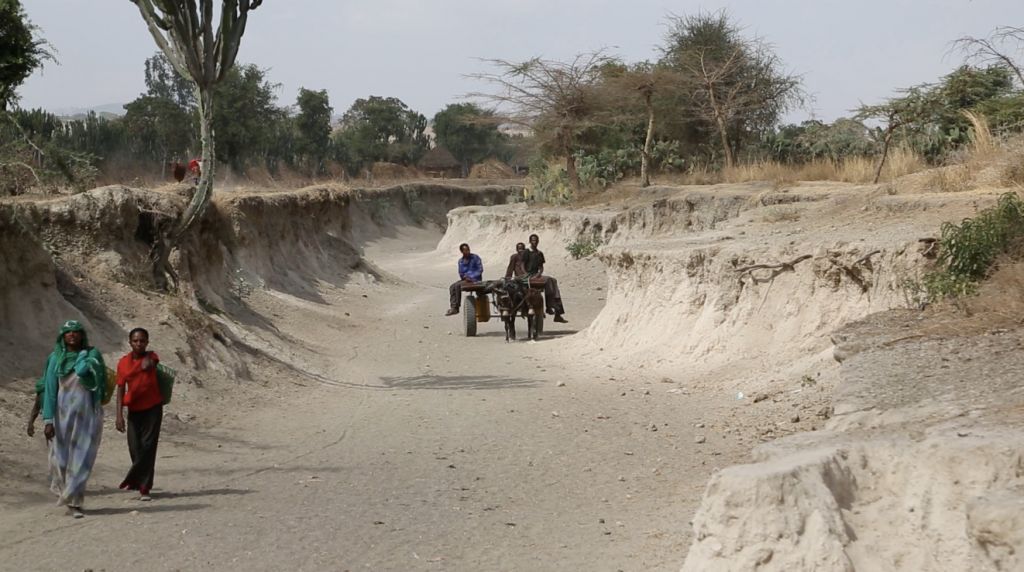
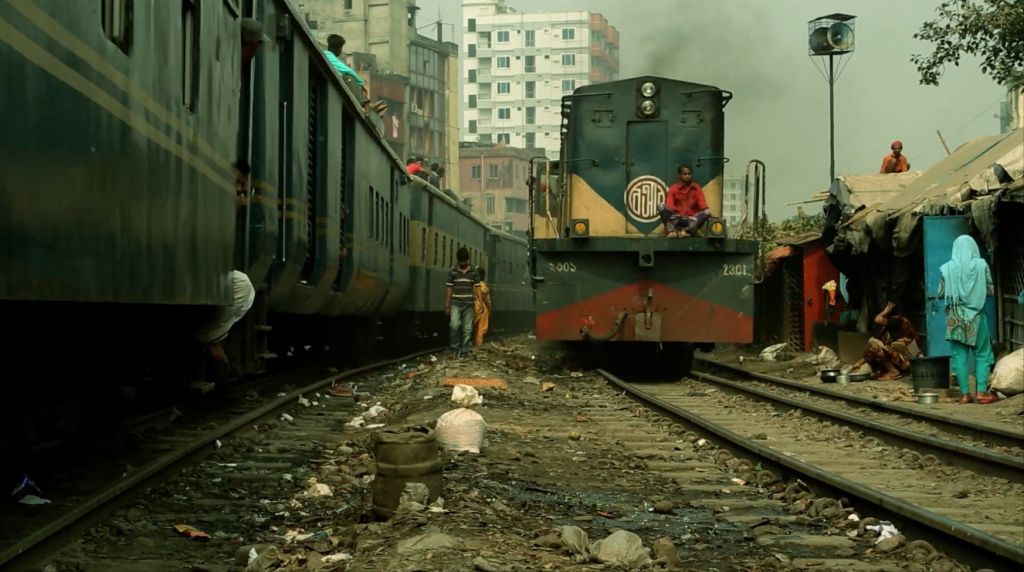
read more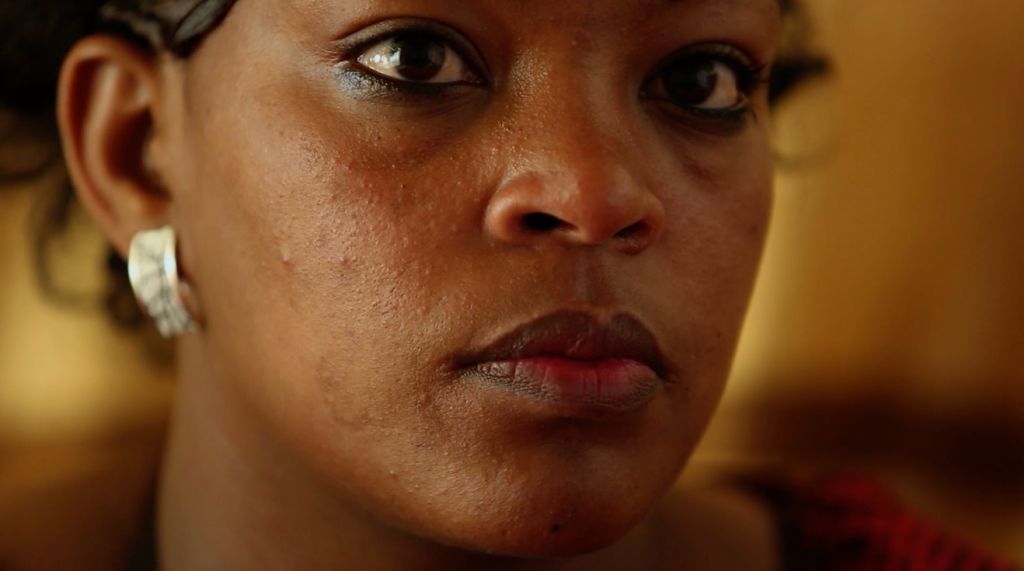
- "21 x Nowy Jork" D, CI: Piotr Stasik, ED: Tomasz Wolski, Piotr Stasik, PL 2016, 70'
A documentary essay about the human condition in 21st-century western society told through the personal stories of 21 people met in the New York City subway. It is a multilayered symphony about emotional longings, the need for communication, and the search for a sense of existence. This trance-like cinematic collage is made of fragmented conversations, scraps of memories and observations which build up a portrait of a world that lost its way.
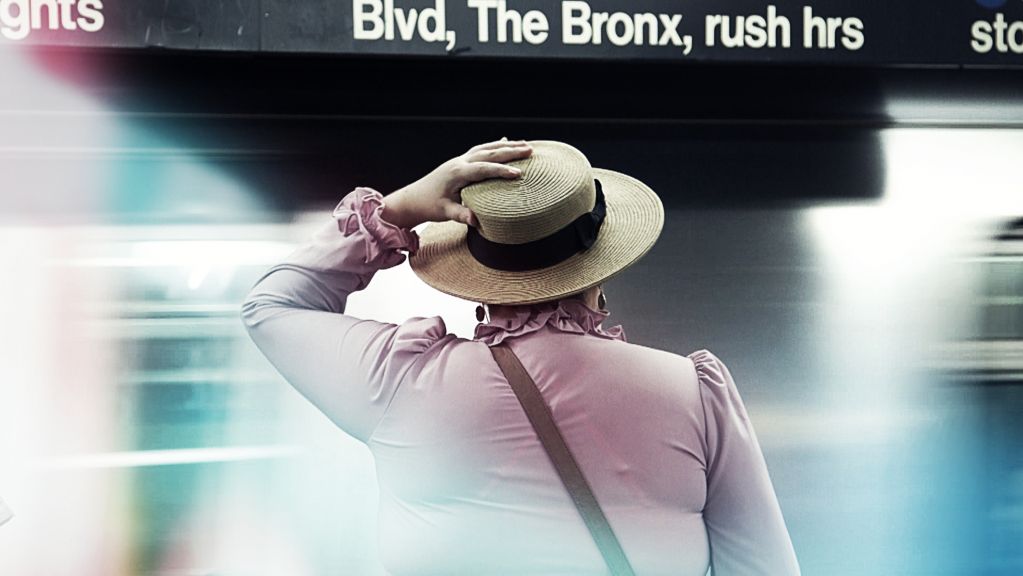
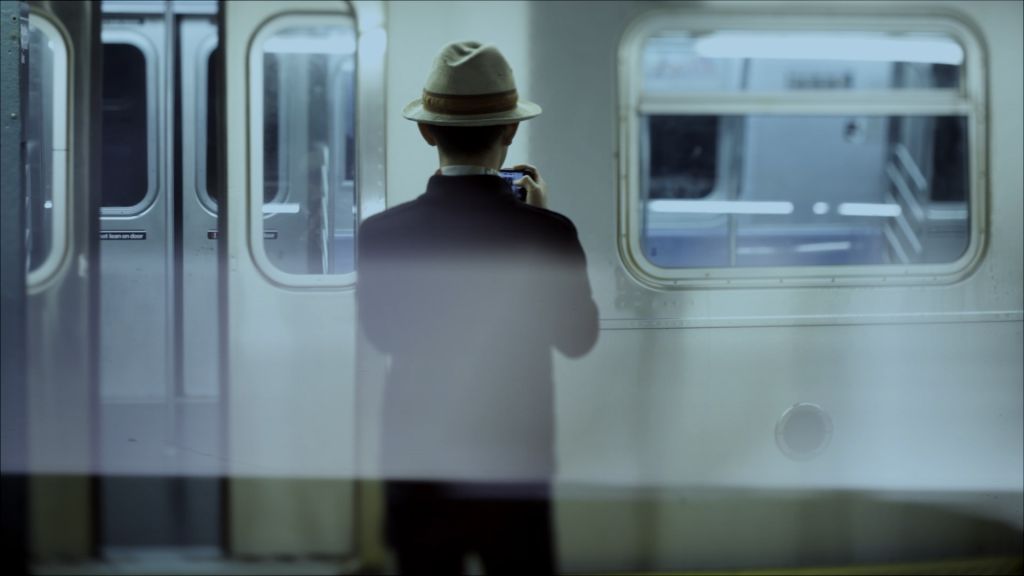
read more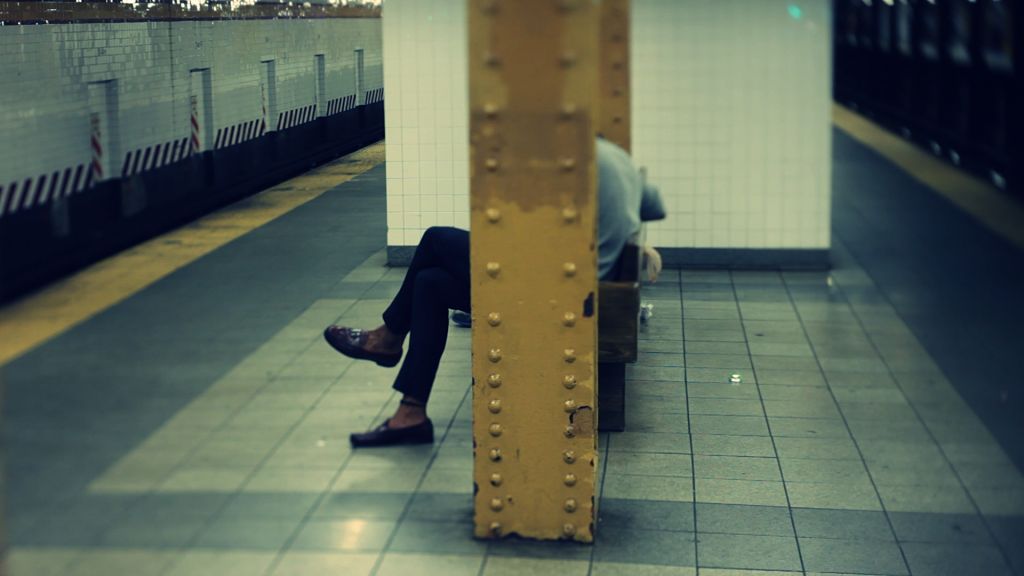
- "Dann muss es ja ein was weiß ich was Gutes geben" D, CI, ED: Florian Andreas Dedek, DE 2016, 31'14”
“Then indeed there’s got to be, what do I know, something good” is a quote from the conversation Fassbinder has with his mother at the beginning of “Germany in Autumn,” which treats about the Red Army Faction (RAF). Dedek's unusual film has many layers. It tells a story of the author's parents, sentenced for a terrorist attack that they may not have committed. The personal story is also part of West Germany’s political, mental, and cultural narrative. Although personal experience may have been its starting point, the film hence exceeds the autobiographical by screening the RAF as an obstinate memory that is ripe with artistic references and mnemonic displacements.

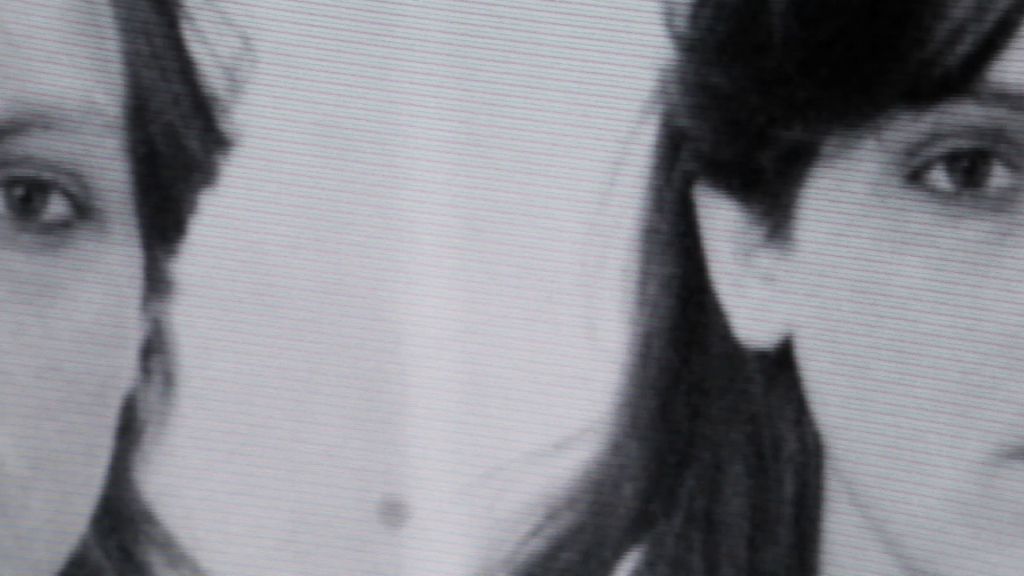
read more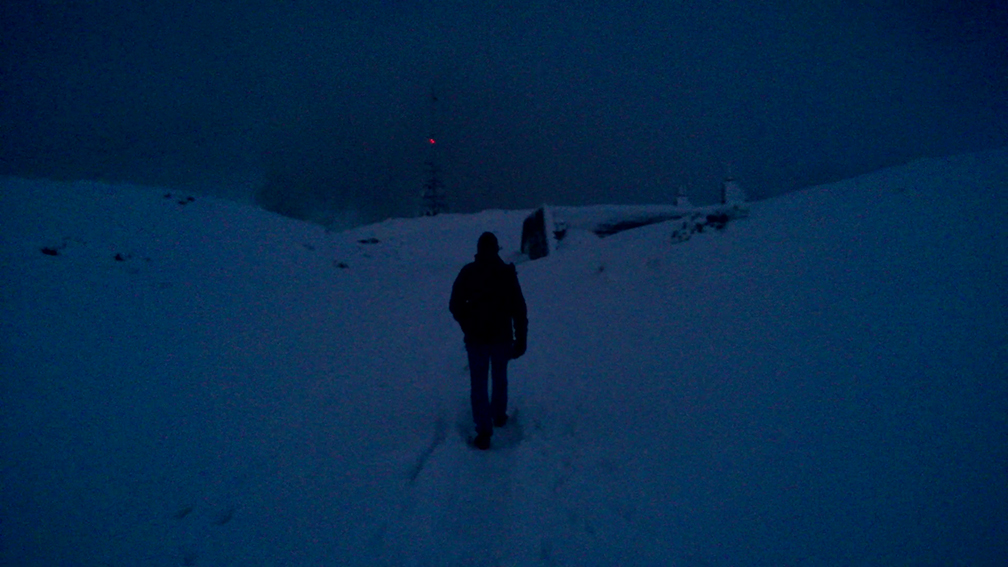
- "D|DK" D, CI, ED: Karsten Wiesel, DE 2017, 12'
The film consists of 9,000 pictures, which animate a 67-kilometre run along the German-Danish border. After long, bloody conflicts, the territory is now peaceful place. The border was established during a referendum in 1920. Seeking the best form of border through the use of a democratic process is unique on a global scale.
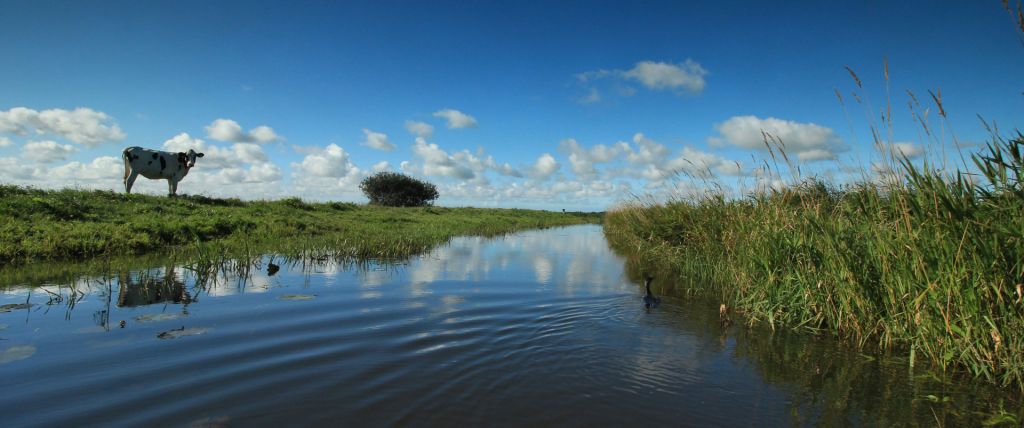
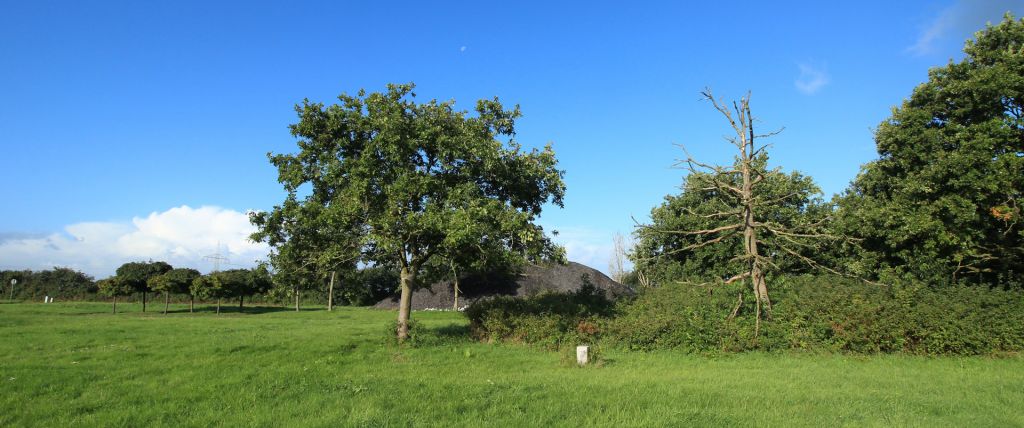
read more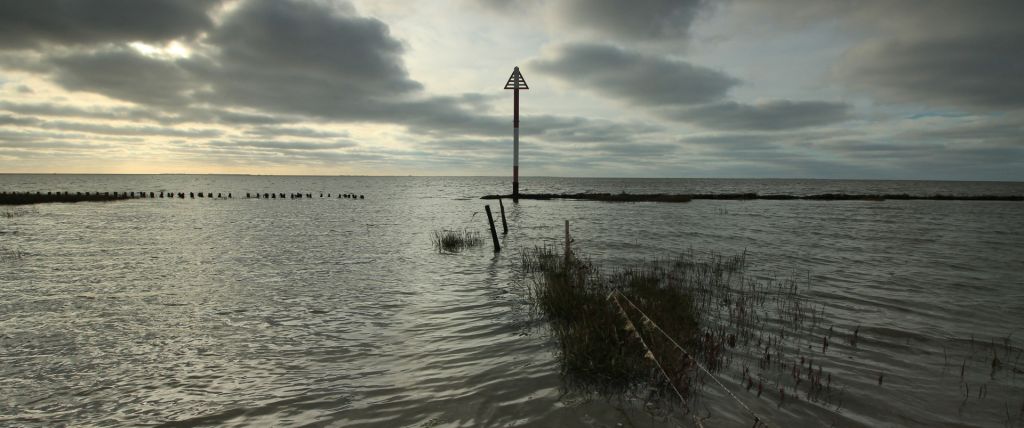
- "Emergency Turned Upside-Down" D, ED: Oliver Ressler, AN: Studio Orlinder Krinkel, AT 2016, 16’13”
“Emergency Turned Upside-Down” was shaped by the “summer of migration” of 2015, when the Schengen system was suspended for several weeks and wealthy European states temporarily opened their borders to refugees. The film is a bold animation where the viewer's focus is rewarded with a spectacle of graphic possibilities, a chain of surprising connotations, and a universal message. Reflections upon a potentially imagined borderless world raises an incredibly important question about the possibility of pulling away from the reality we know, where the rhythm is established by boundaries.
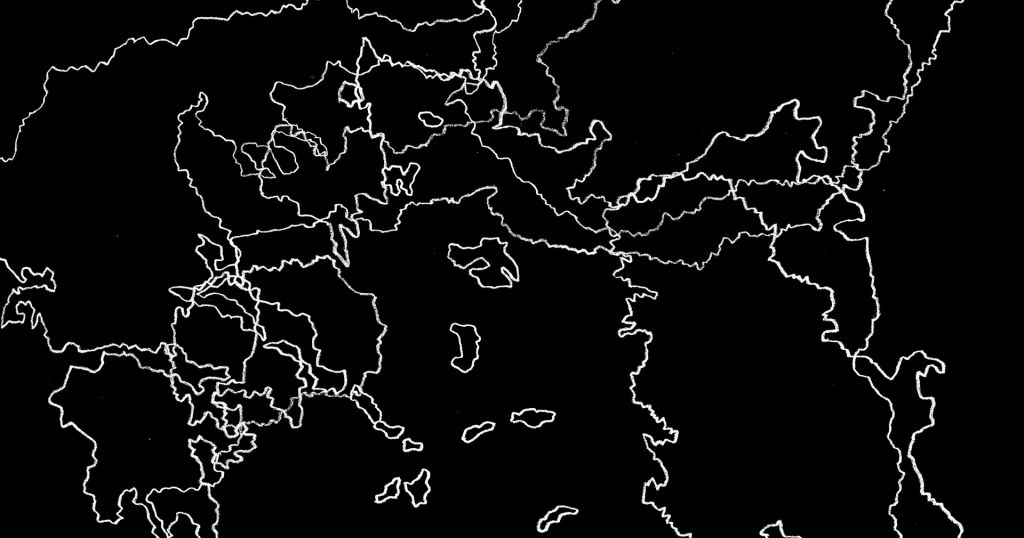
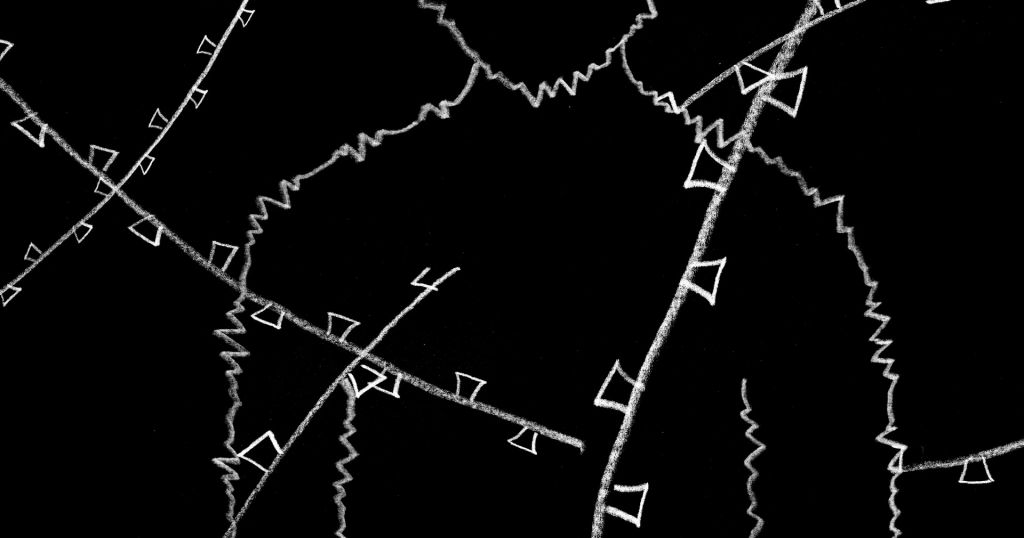
read more
- "Faber Navalis" D, CI, ED: Maurizio Borriello, IT 2016, 33'20"
“Faber Navalis” is Latin for “boatbuilder.” The film might seem to be about the restoration of a wooden ship, but the actual subject is the ecstatic state of mind of the shipwright. An Italian researcher in maritime ethnography decides to learn the art of traditional boatbuilding in order to understand the intangible knowledge hidden behind the construction of a wooden ship. This film is an extraordinary combination of aesthetics and ethnography.
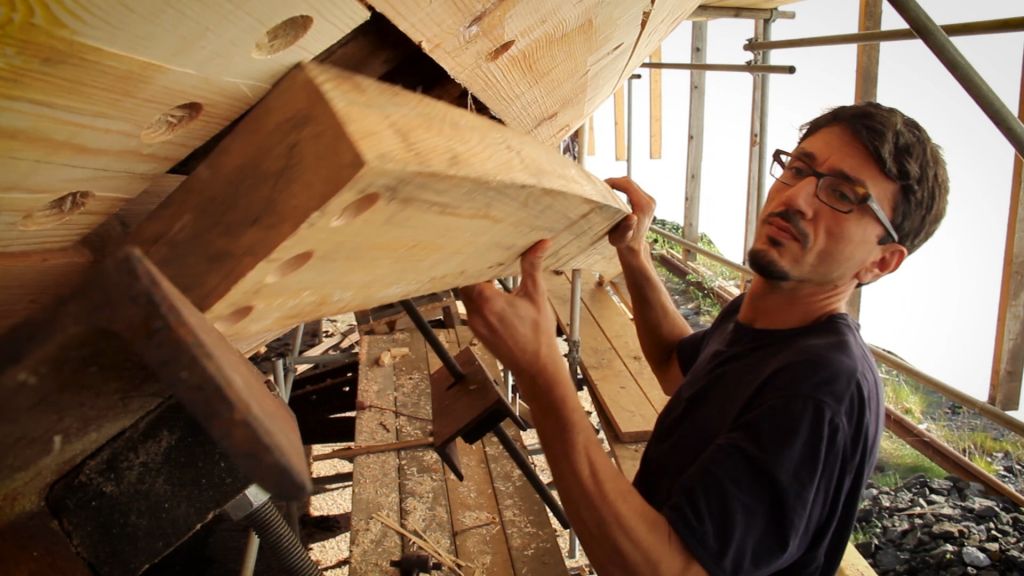
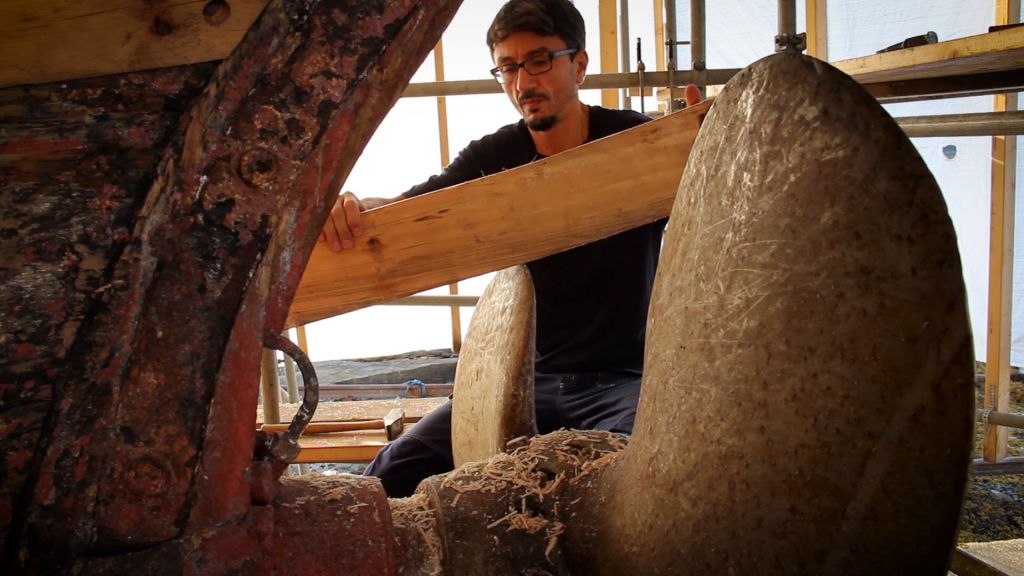
read more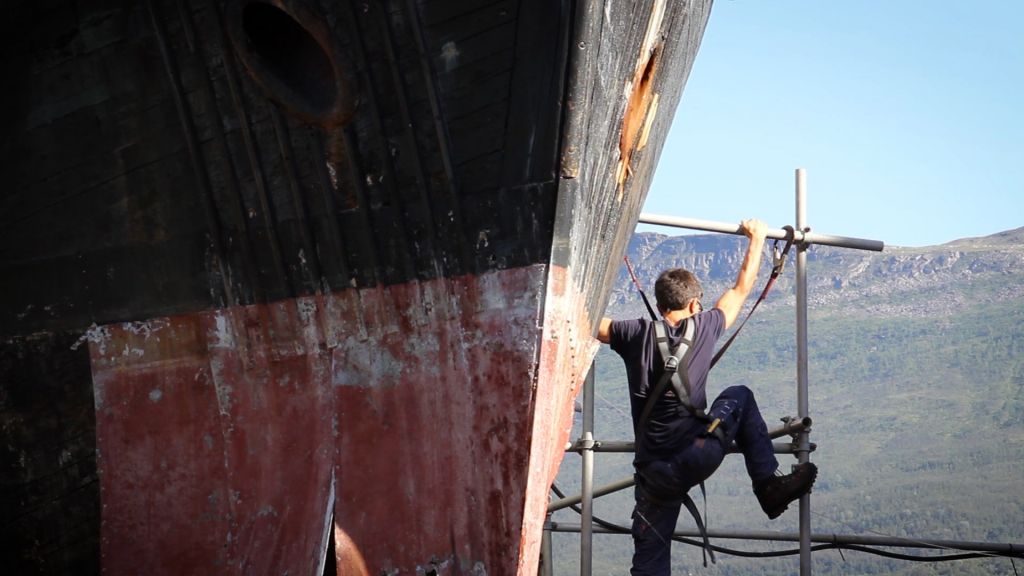
- "Full" D: Lexie Bean, Zach Jamieson, CI: Zach Jamieson, Lexie Bean, Adriel Irizarry, Lisa Neumann, Tomasz Deeg, ED: Zach Jamieson, USA/HU 2017, 12'8”
An incredibly innovative, engrossing film collage documenting dissociation, sexual assault, and other difficult-to-describe experiences of the protagonist. Directed by Lexie Bean and Zach Jamieson, the film will evoke true uneasiness in any viewer. The authors have found a non-trivial way to document traumatic events that leave a mark on a person's entire life.
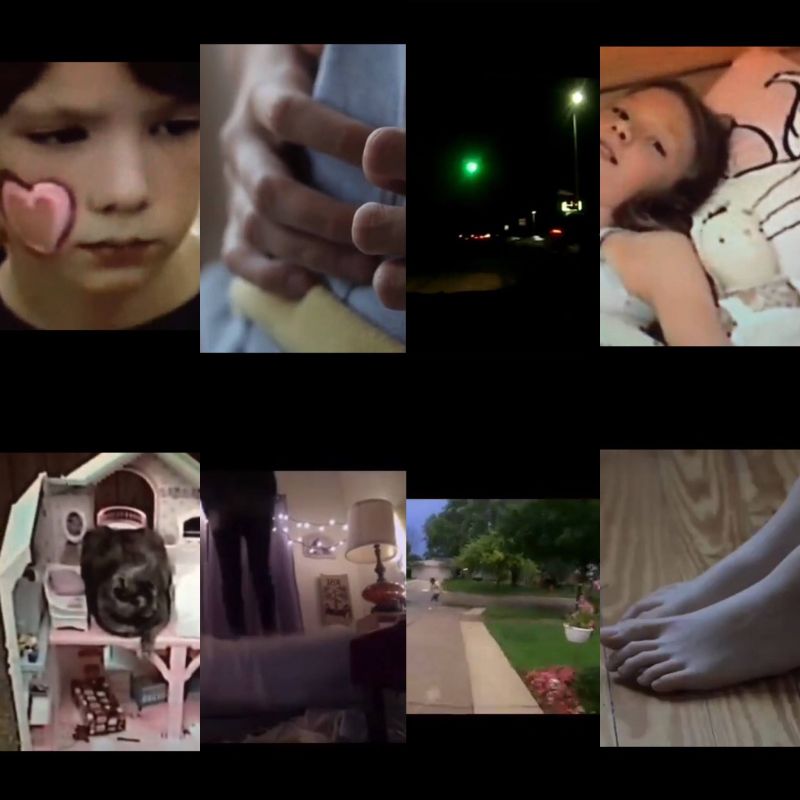
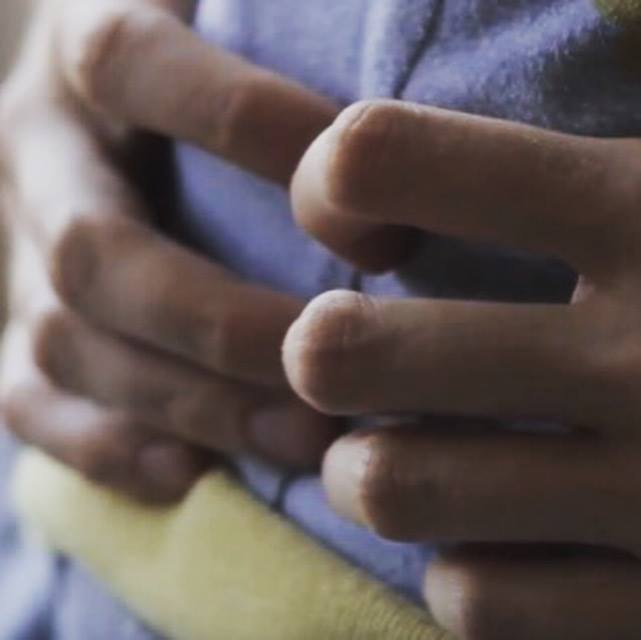
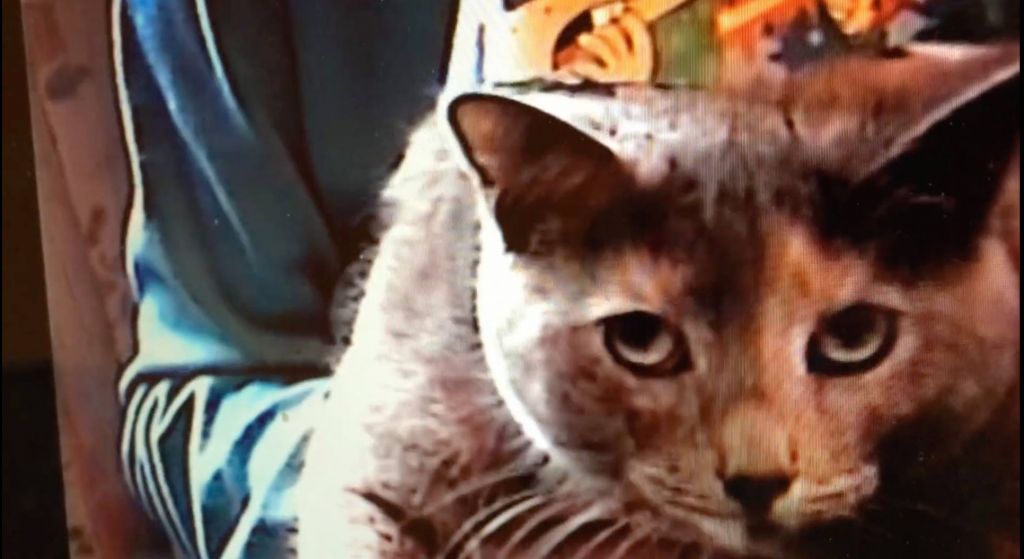 read more
read more - "Good Morning, Good Evening and Goodnight" D, ED, CI: Constantinos Christou, CY 2017, 11'
Constantinos Christou created the film while studying in the UK via the Erasmus Exchange program. The piece is closely connected with the incredibly important philosophical idea of time. The young author wanted to show how time passes when you are having the time of your life. The film's important virtues are beautiful cinematography and wonderful, hypnotising music, which make it a real feast both image- and sound-wise.

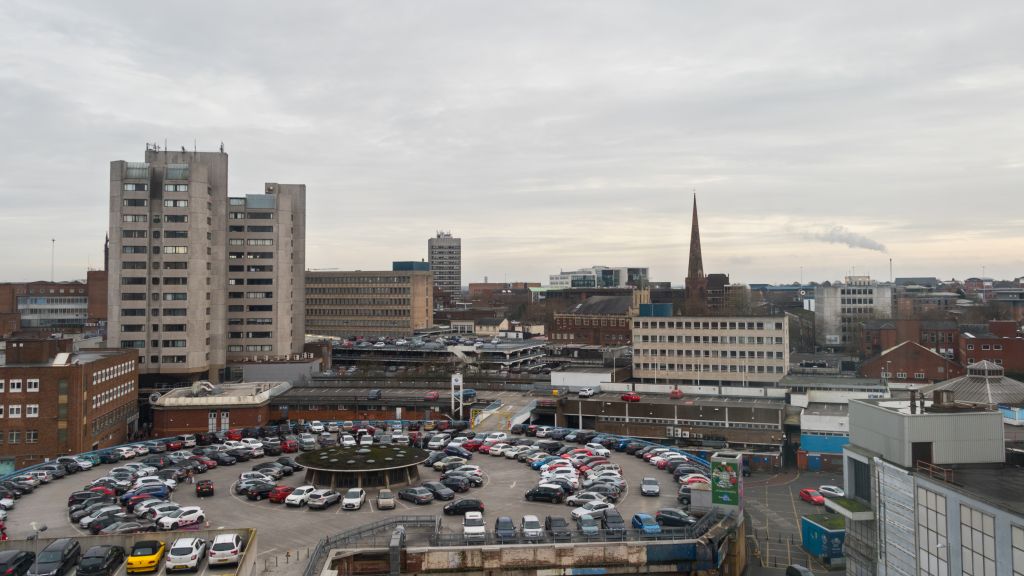
read more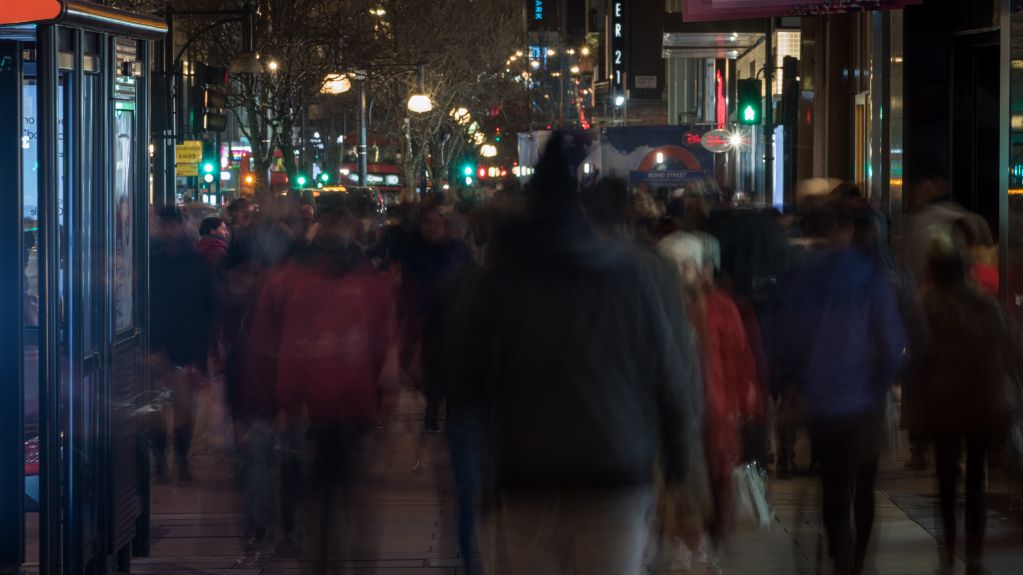
- "Gusła ou le Malins" D: Adrienne Nowak, I: Eric Mauger, AN: Adrienne Nowak, Sandra Rivaud, Emilie Pigeard, Florent Morin, ED: Nazim Meslem, FR 2016, 9’
Adrienne goes back to Poland, where she was born, to see her grandmother and ask her family about the still relatively recent times of communism. In her aunt and uncle’s cosy kitchen she will learn that the spirits of communism are not the only ones to haunt Polish immigrants, and that there are many unexpected and old means of facing them. This extraordinary animation merges the real and surreal worlds in a humoristic way. As it turns out, withcraft and fortune-telling are still deeply entrenched in today's Poland.
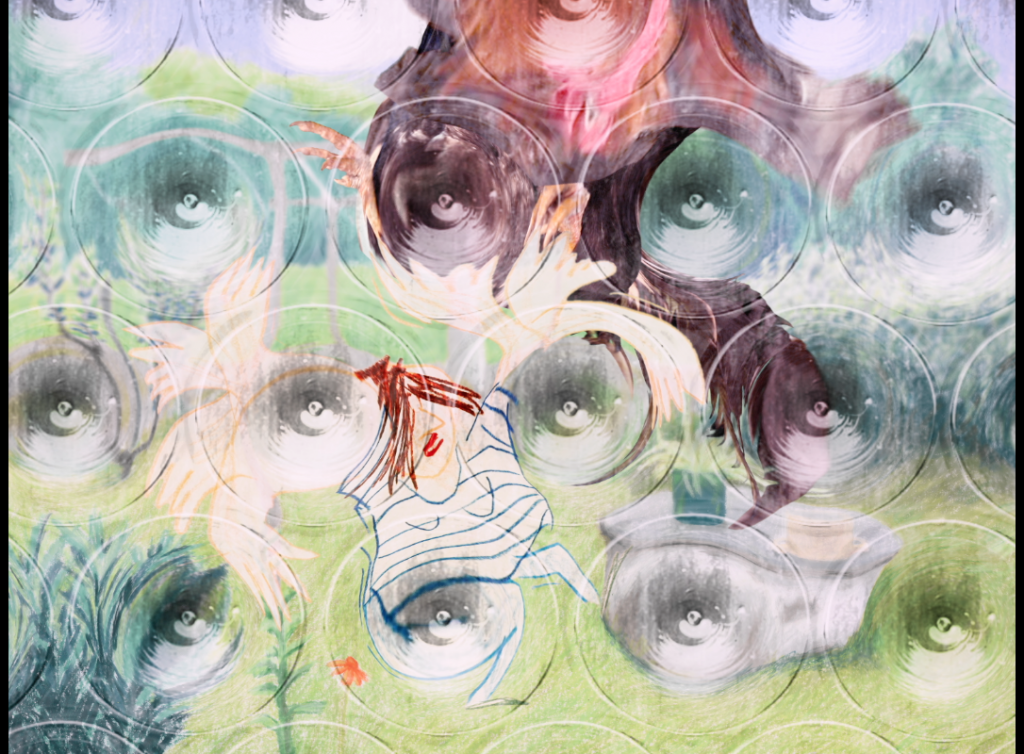

read more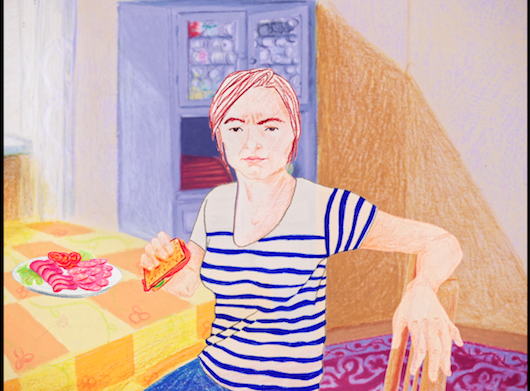
- "In the Backward of Time" D, CI, ED: Danilo Torre, IT 2017, 10'37”
A film inspired by a classic film genre, a city symphony. The title refers to a verse from William Shakespeare's “The Tempest,” which tells the story of wizard Prospero, the rightful Duke of Milan. The manipulations of Prospero are reflected in this video with the use of cinematographic tricks. Time shifts, digressions (flashbacks), and visual abstractions describe the development of the city of Milan, shown allegorically in the form of skyscraper constructions. The film seems to seek an answer to a specific question: can we crystalise time with the use of expired film stock?
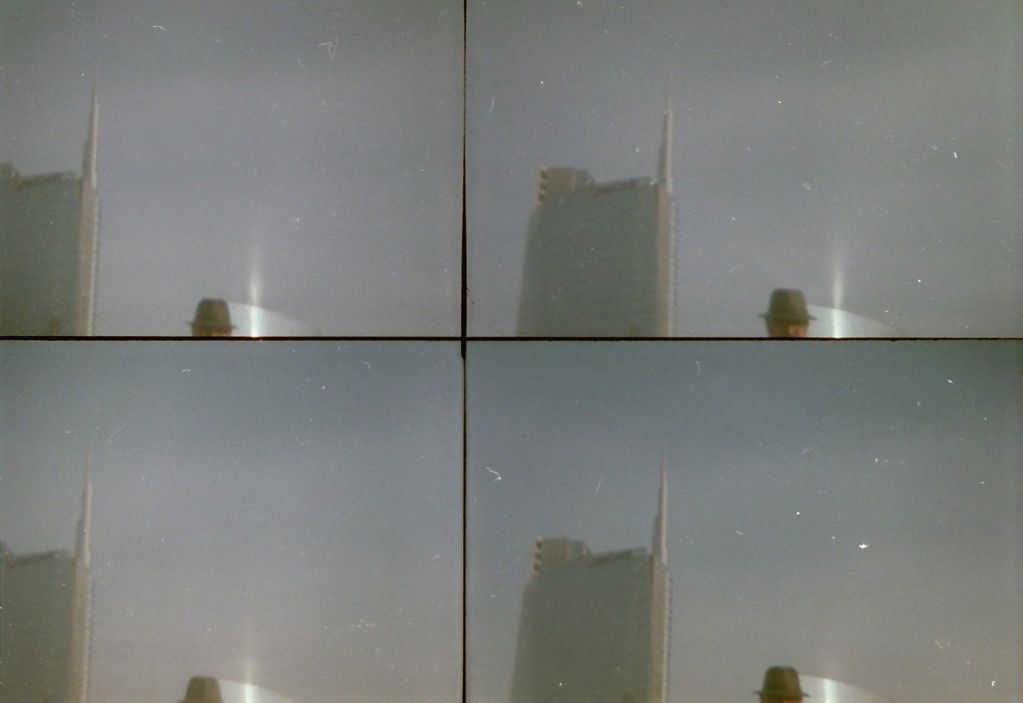
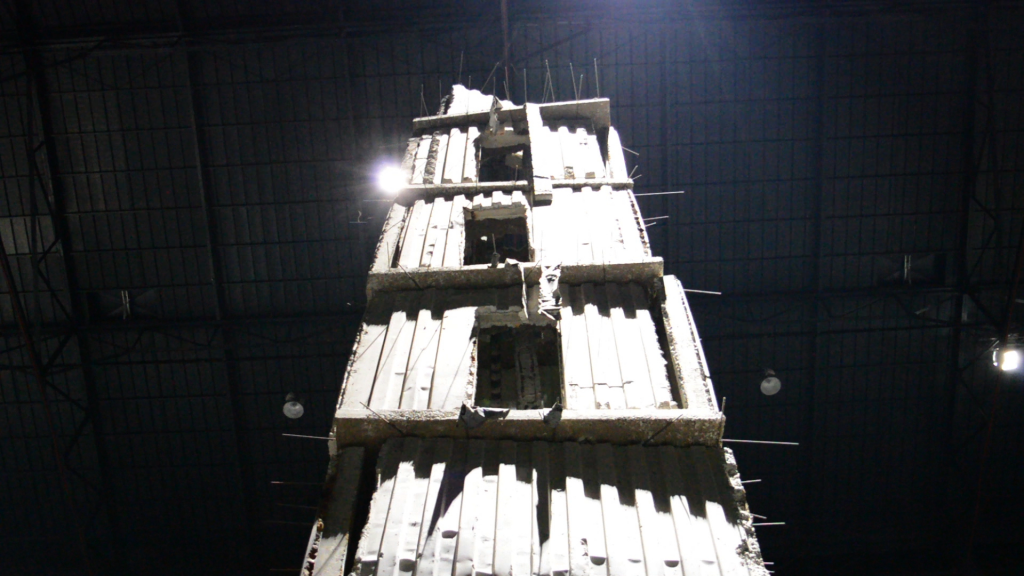
read more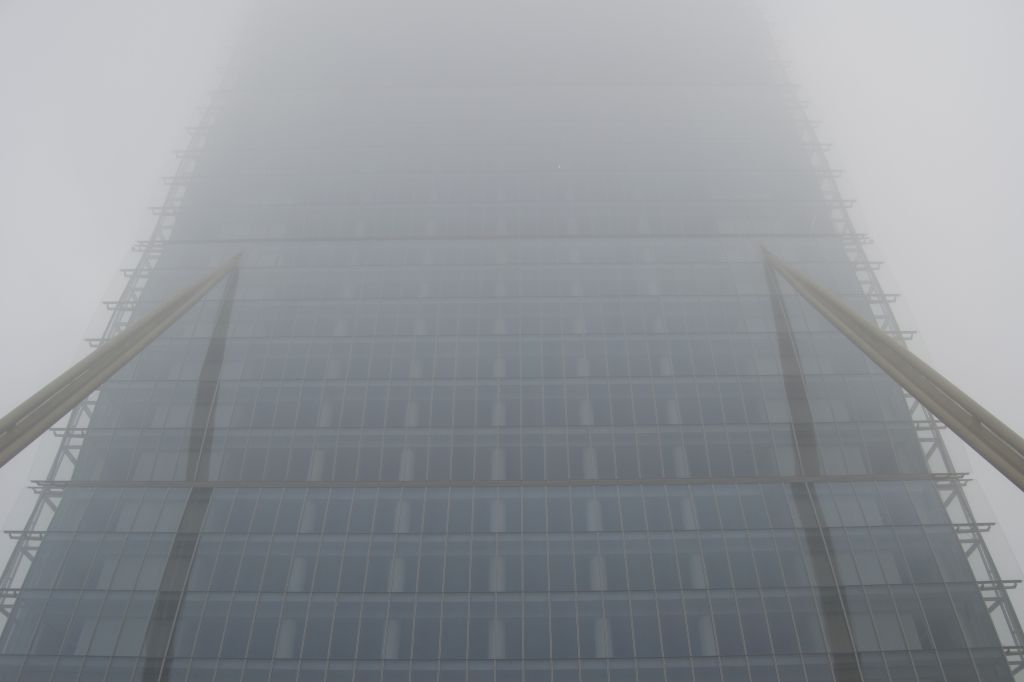
- "Jestem" D, CI: Grzegorz Paprzycki, ED: Grzegorz Paprzycki, Dorota Roś, PL 2017, 23’
A couple goes on a journey across the French Alps. Apart from beautiful landscapes, they share views on topics related to faith and the creation of the world. This extraordinary documentary short shows us an intimate picture of an exceptional couple who love each other very much, but who also have very interesting comments on current socio-political and religious-metaphysical topics (the issue of Islam, the historical events connected with the Third Reich). Grzegorz Paprzycki, responsible for directing, editing, sound, and cinematography, has created an unusual mixture of a documentary and a road movie.

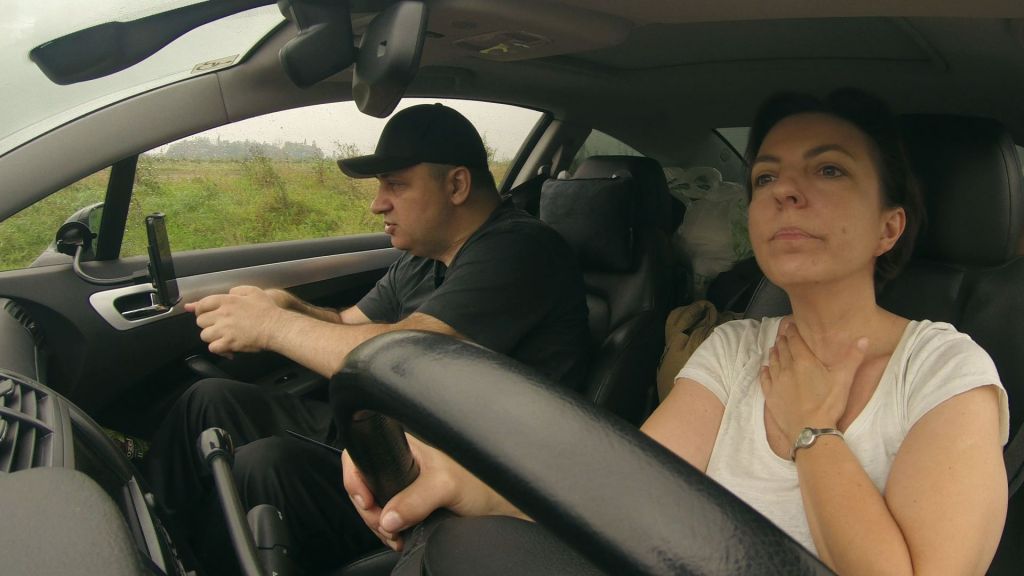
read more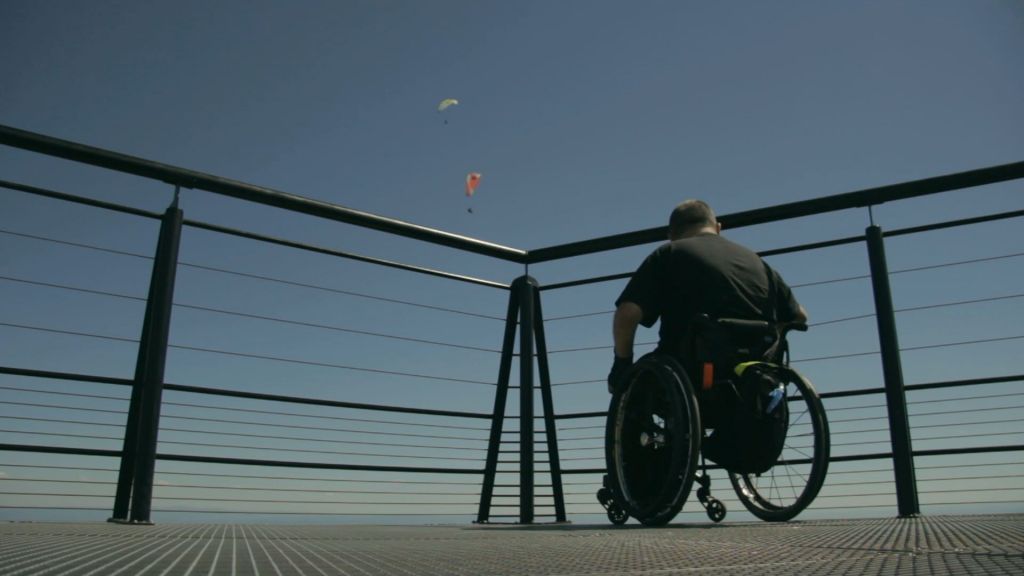
- "Józio, chodź do domu" D: Marcin Chłopaś, CI: Maja Nowak, Miłosz Mickiewicz, ED: Michał Chojnacki, Marcin Chłopaś, PL 2016, 30’
Societies are good at punishing “others” – claimed to be different because of some, usually absurd, reasons. A Jew in Poland can feel and in fact be an alien. The same Jew in Israel can become an alien, when noticed not to have been circumcised. “Jozio, come home” is the story of a child of Holocaust survivors who is abandoned many times – by both Poles and Jews. He travels home – to the Polish town of Wałbrzych – for the first time in 54 years, only to discover that he has no home, he belongs nowhere. The soundtrack for the movie was composed by Mikołaj Trzaska.
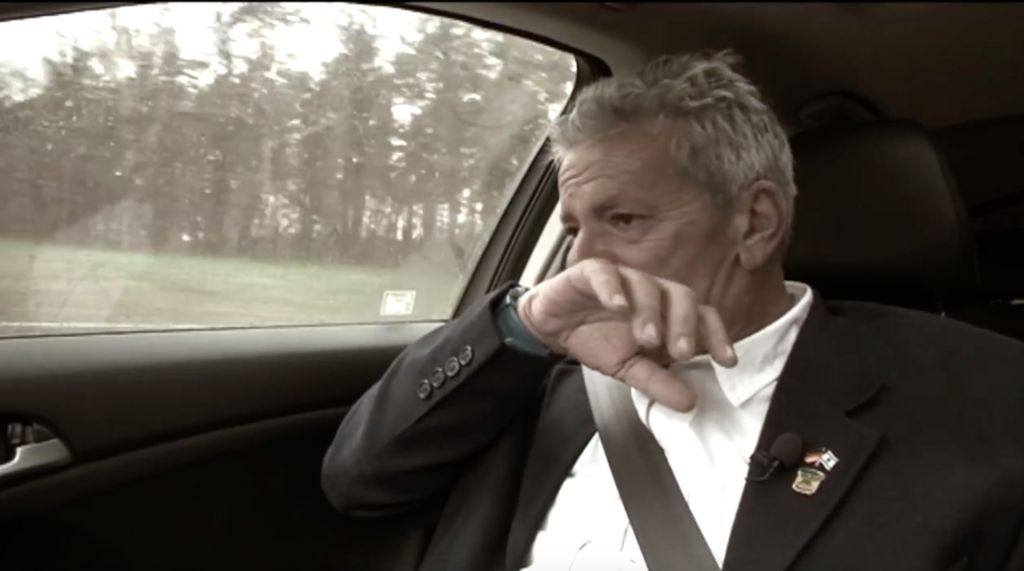
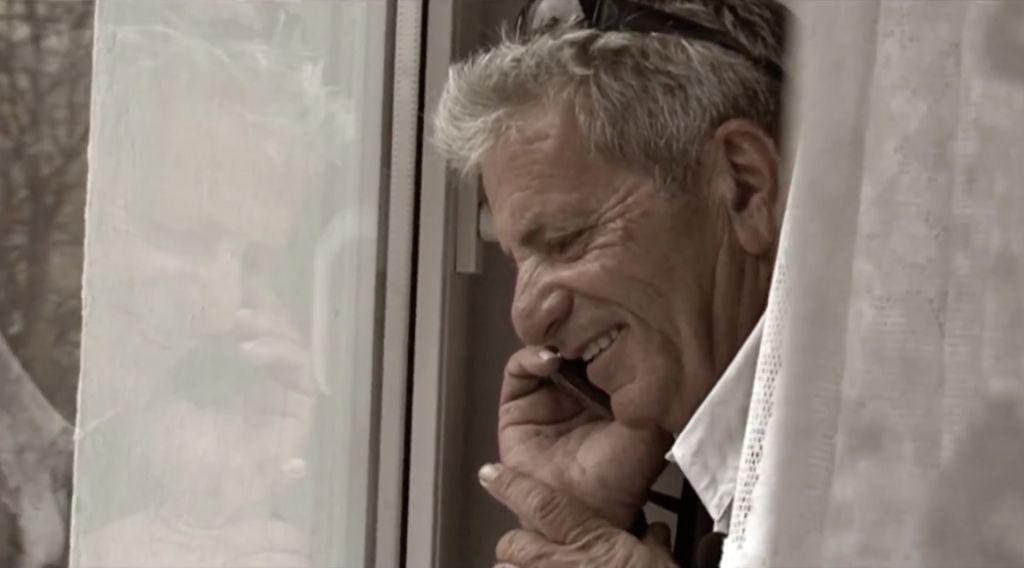
read more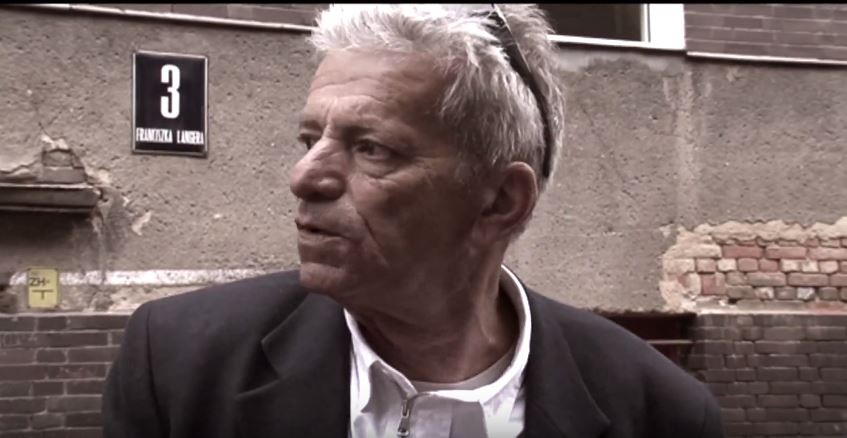
- "La Comunión de la Nena" D, CI: Juan Vincente Castillejo Navarro, ED: Juan Vincente Castillejo Navarro, Hugo Elegido Nebot, ES 2017, 10’
In the life of every Catholic child, First Communion is a unique and festive ceremony, and an occasion to meet the whole family. The film, documenting the day of a little girl's First Communion, exercises original poetics that merge home video with beautiful shots of a very stylish home interior. “La comunión de la Nena” is an unusual look at family and childhood which seems like a great, elusive mystery when viewed from the perspective of bygone years.
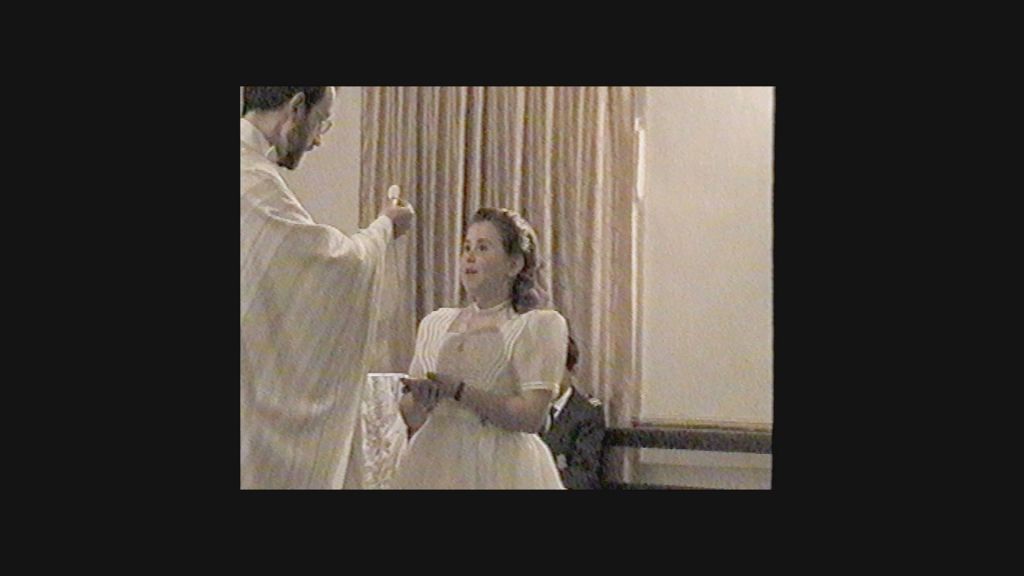
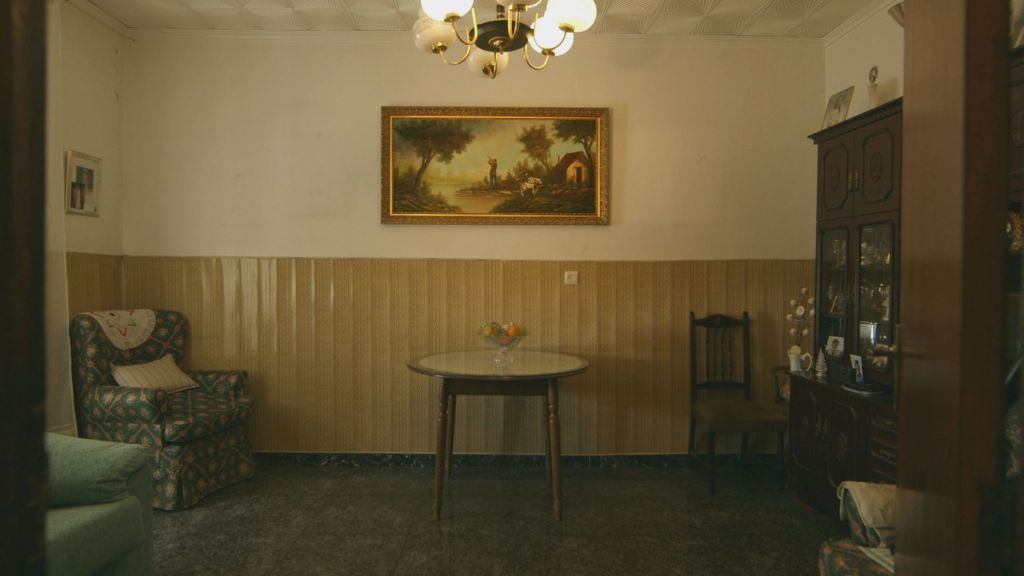
read more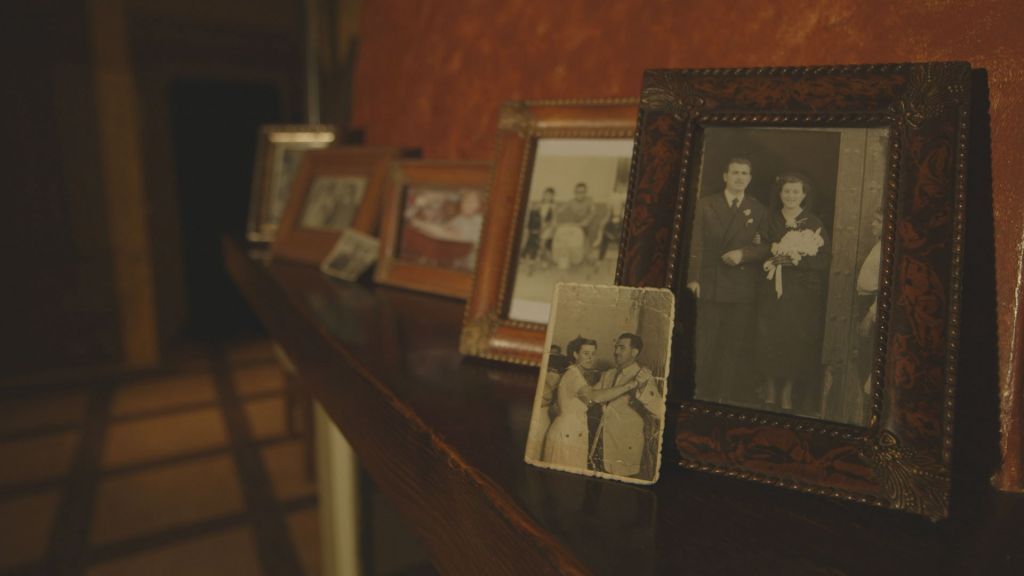
- "La Concorrente" D, CI: Alberto Diana, ED: Alberto Diana, Garbiñe Armentia, IT/ES 2016, 40'
Francesca, a freelance gym teacher, lives alone with her three children in Sardinia. The economical crisis goes on, and her efforts now do not seem to be enough to maintain the life status that she desires for her and her children. That is why she decides to take a chance and enter a TV quiz show. “The Contestant” is a drama documentary about an incredibly strong and dynamic woman who bravely faces life obstacles and tries to be the best mother she can be.
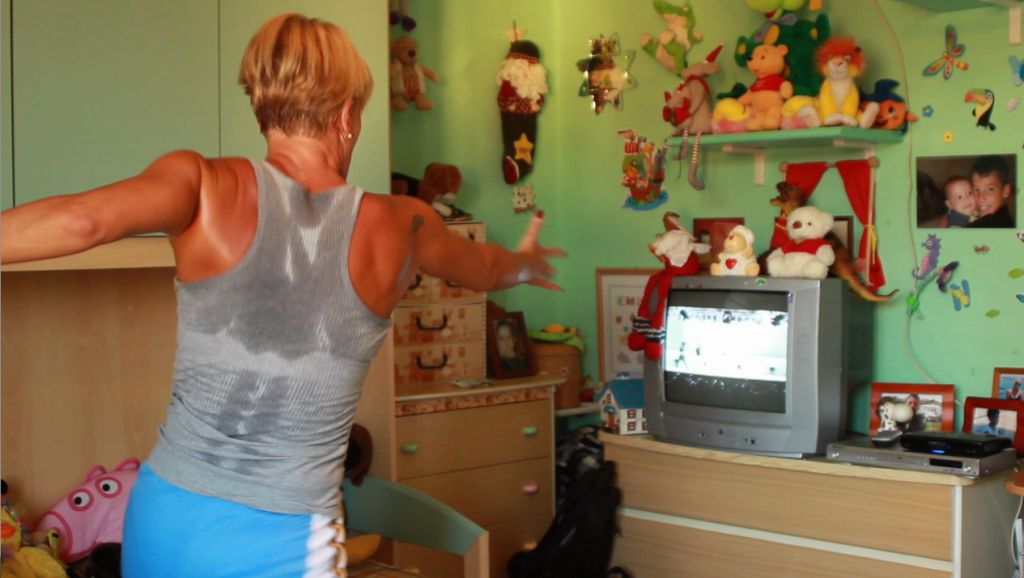
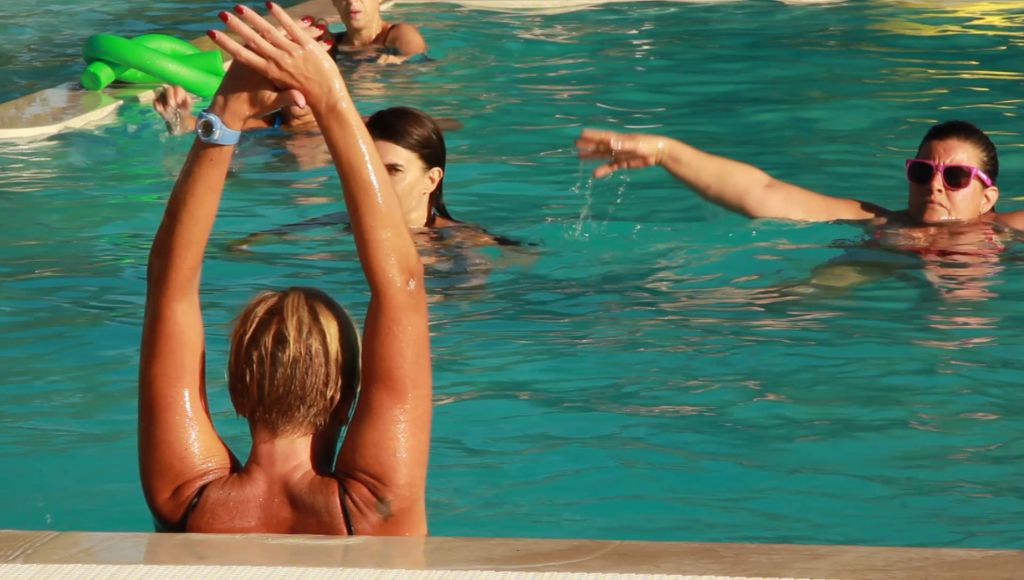
read more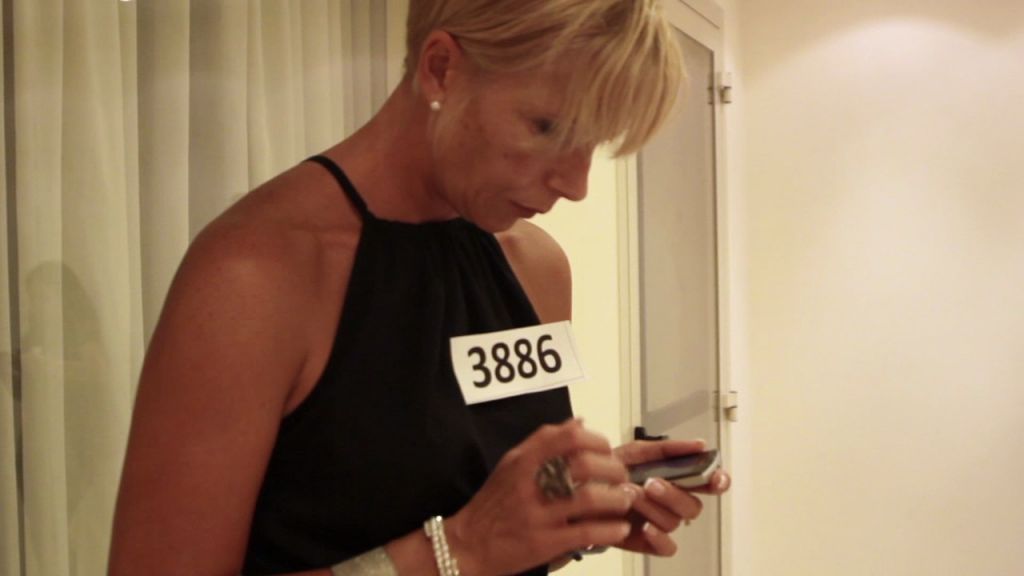
- "Lupus" D: Carlos Gómez Salamanca, AN: Carlos Gómez Salamanca, Gilles Coirier, Fabienne Collet, ED: Carlos Gómez Salamanca, Juan Pablo Gómez Salamanca, FR/CO 2016, 9’
In December 2011, a security guard was killed by a pack of stray dogs prowling in a poor neighbourhood, in the Bogota suburbs. This tragic news inspired the Columbian director to make a one-of-a-kind animated film, taking on weighty issues of body, wildness, and territory. The film reminds one of a dark, disturbing thriller. The howl of hungry dogs, heard in the background, becomes a terrifying leitmotif of the whole picture.
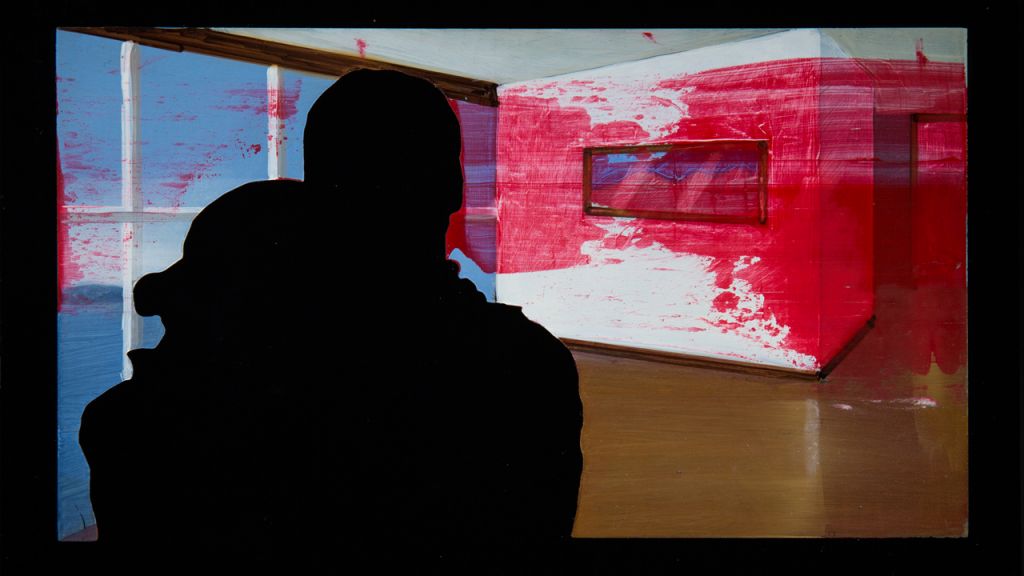
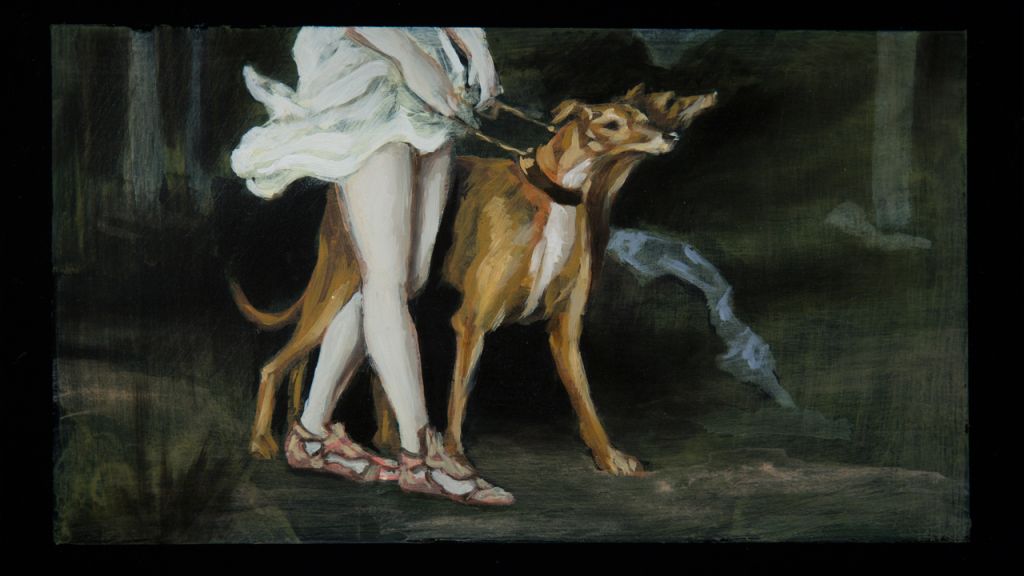
read more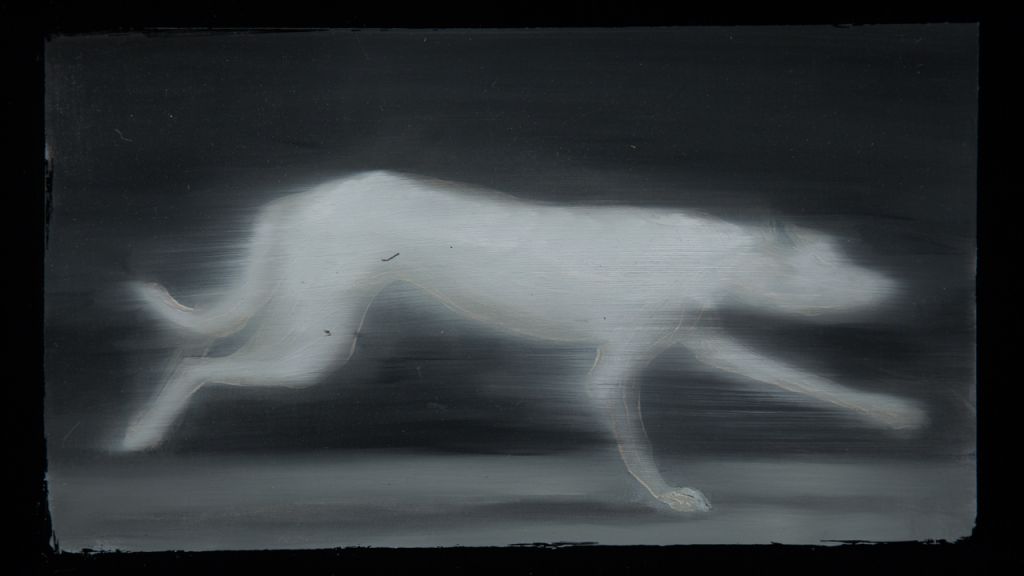
- "Melleņu gari" D: Astra Zoldnere, CI: Kaspars Brakis, ED: Astrida Konstante, LV 2016, 12’40”
A poetic documentary about a Roma family that spends its summers in the Latvian woods, picking berries to make a living. While harvesting the fruit of the forest, they reflect on their identity as a group by sharing incredible ghost stories. Surrounded by existential questions on how to balance the future and the past, traditions and modern life, this metaphysical documentary points out their struggle for identity as a journey between night and day, and vice versa.
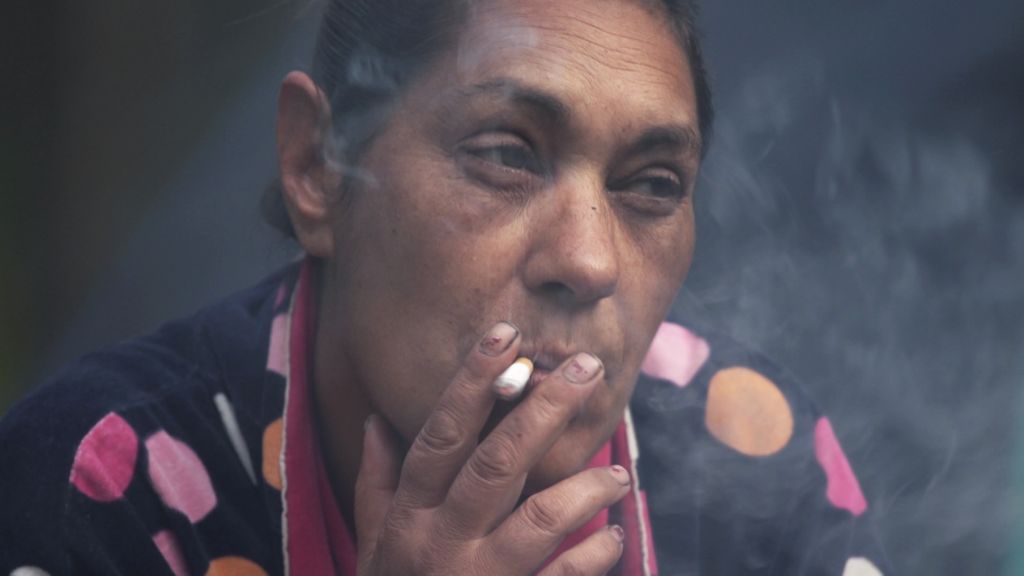
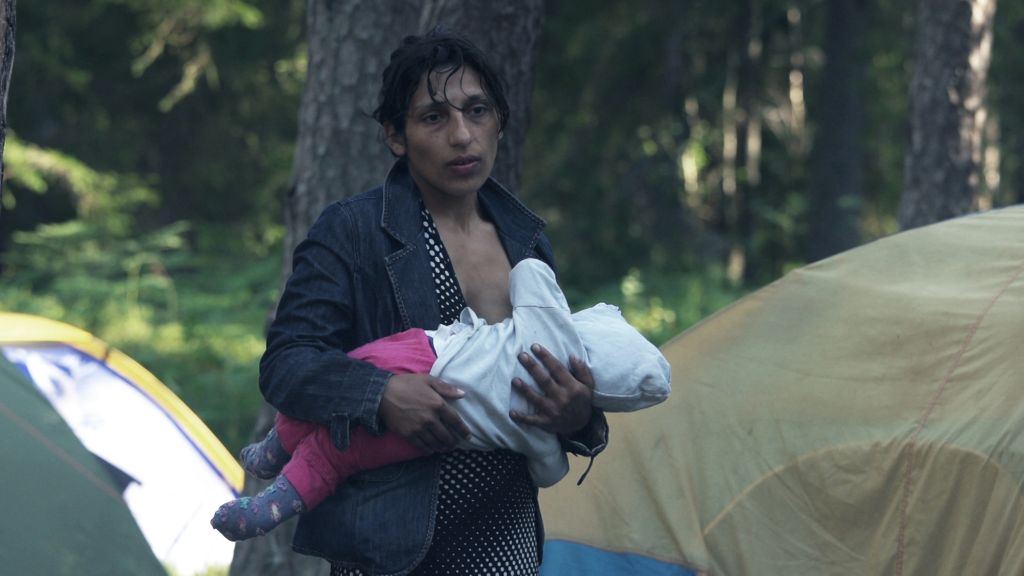
read more
- "Pięknie nam się układa" D, CI: Maciej Jankowski, ED: Agata Cierniak, PL 2016, 27’30”
Kasia, a 19-year-old Ukrainian girl, lives with her two-year-older boyfriend Emil, a truck driver from Poland. One day he decides to quit his job and, together with Kasia, start earning money by selling their intimate life on the Internet. They both make money on a website which offers the viewers live sex. Emil is having doubts when it comes to telling his father about this controversial line of work. Maciej Jankowski created a very bold documentary about young people who are looking for their place in life.

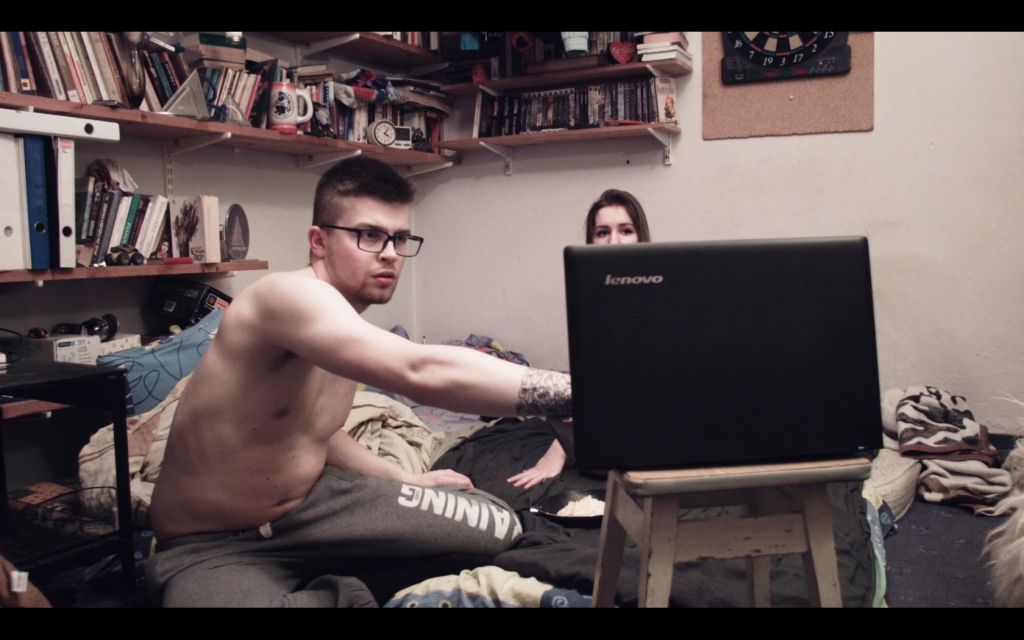
read more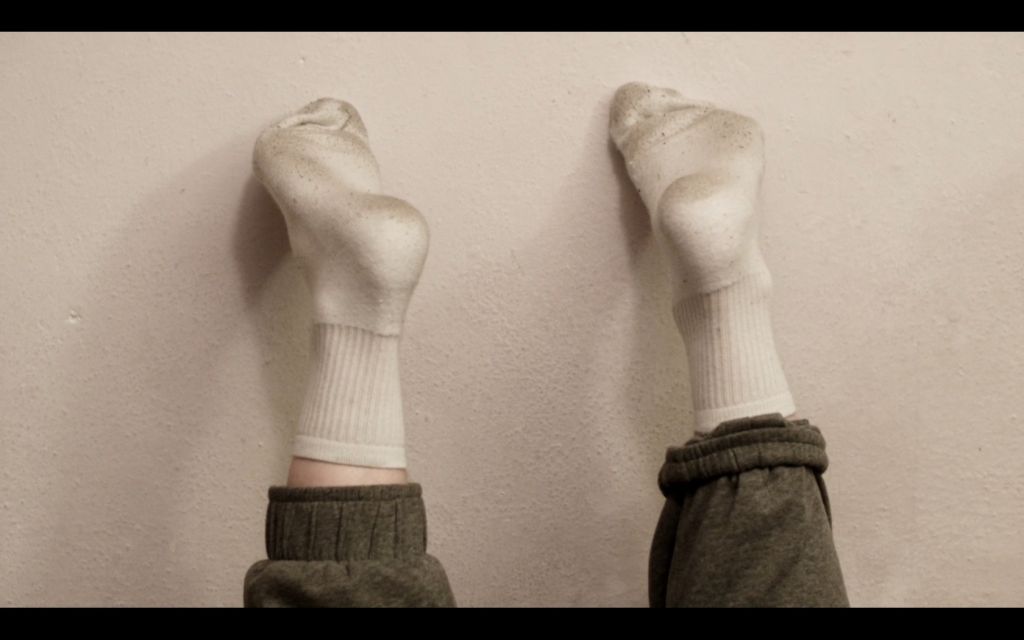
- "Prezent" D, ED: Sylwia Rosak, CI: Wojtek Ratajczak, Sylwia Rosak, PL 2017, 15’23”
An intimate story about a father-daughter relationship, told in nine chapters. Polish director Sylwia Rosak skilfully captures the way human life gets divided into fragments. Each one is a metaphorical memory from early childhood, throughout puberty, and adult life. The father is an important character in the film, as the one whose memory is very vivid in the protagonist's mind, and who influences her life to this day.
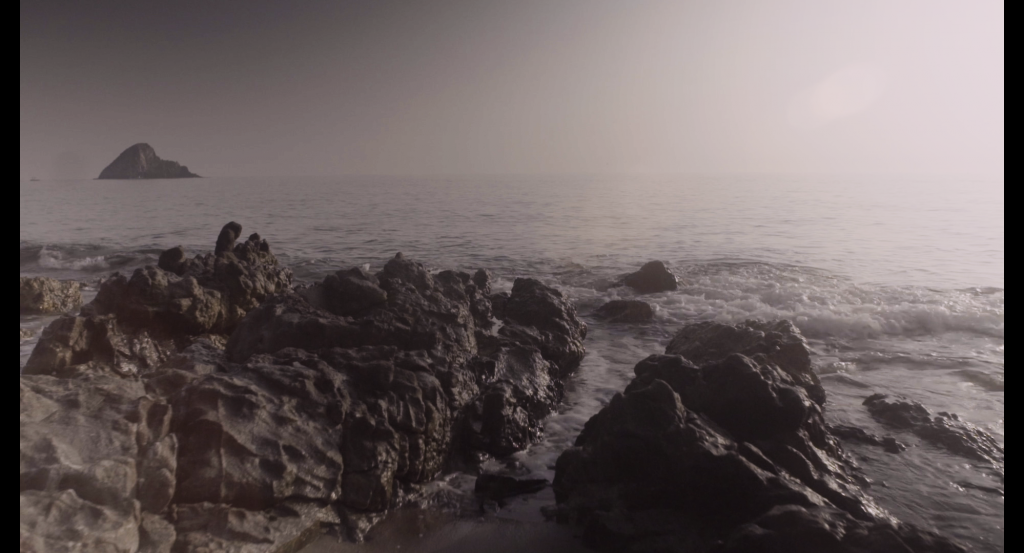
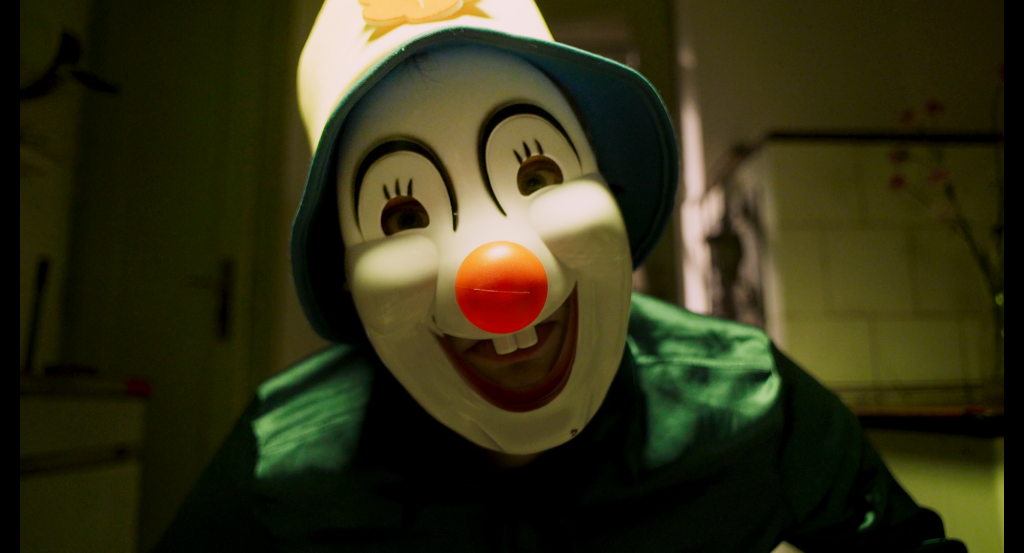
read more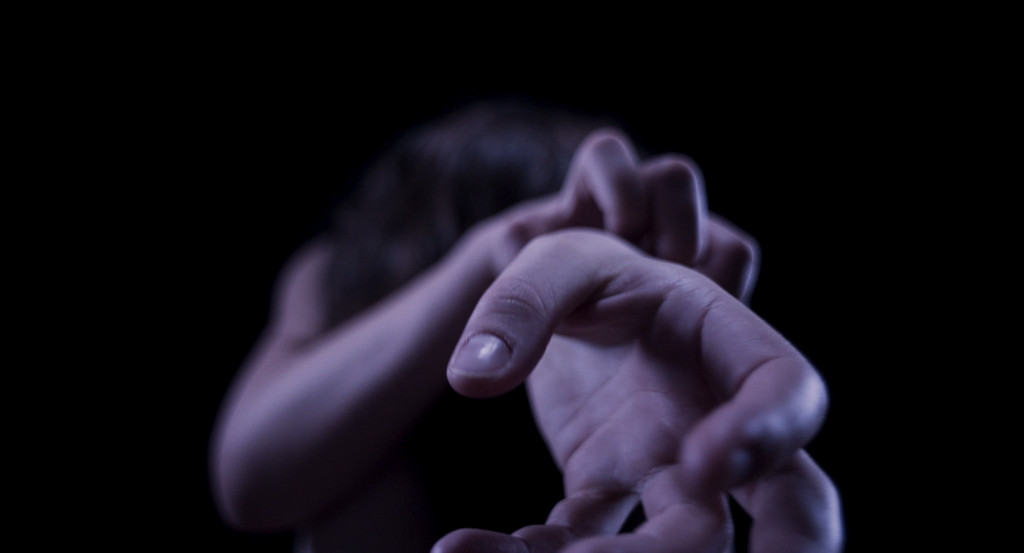
- "Protokolle" D, CI, ED: Jan Soldat, DE 2017, 19’
We all have dreams. What happens, however, when those longings radically intrude the taboo that society and culture impose upon us? A hair-raising psychological documentary by Jan Soldat portrays three men whose concealed fantasies will evoke disgust and shock in some viewers. The protagonists wish to be slaughtered, dismembered, and eaten. A more insightful audience member may find references to famous cannibalistic films (“Cannibal Holocaust,” “The Silence of the Lambs,” “Grimm Love”).
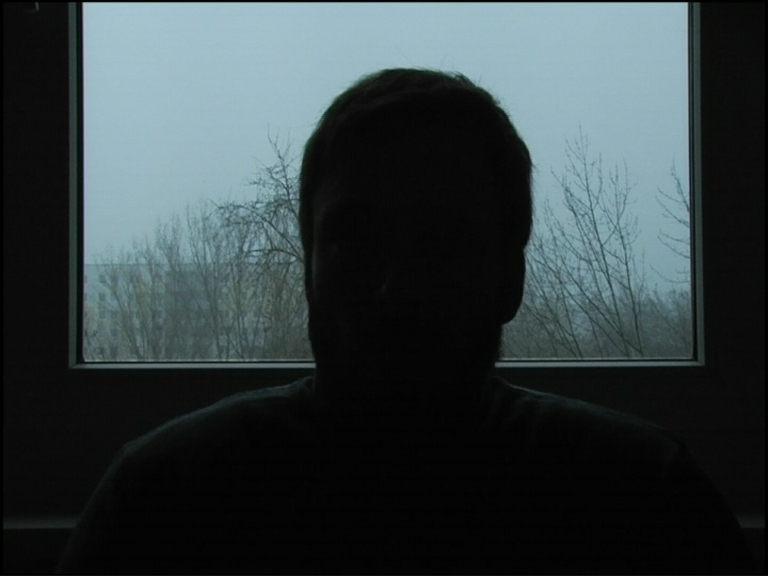
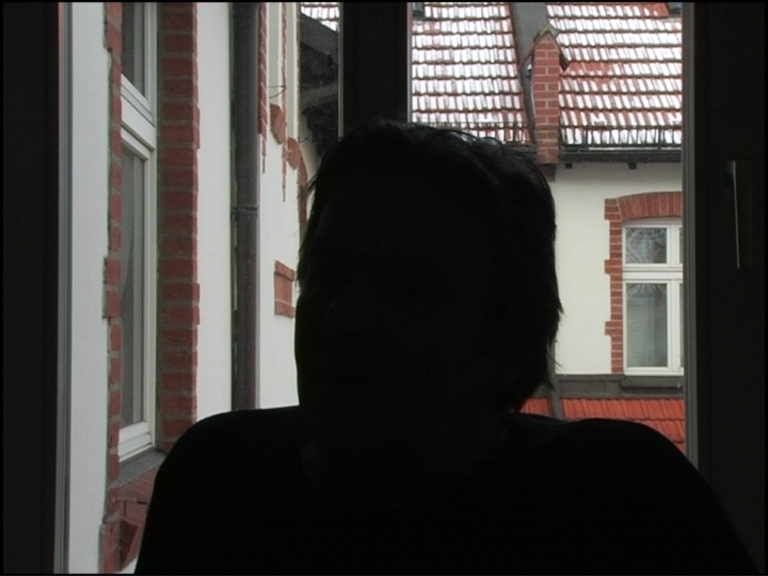
read more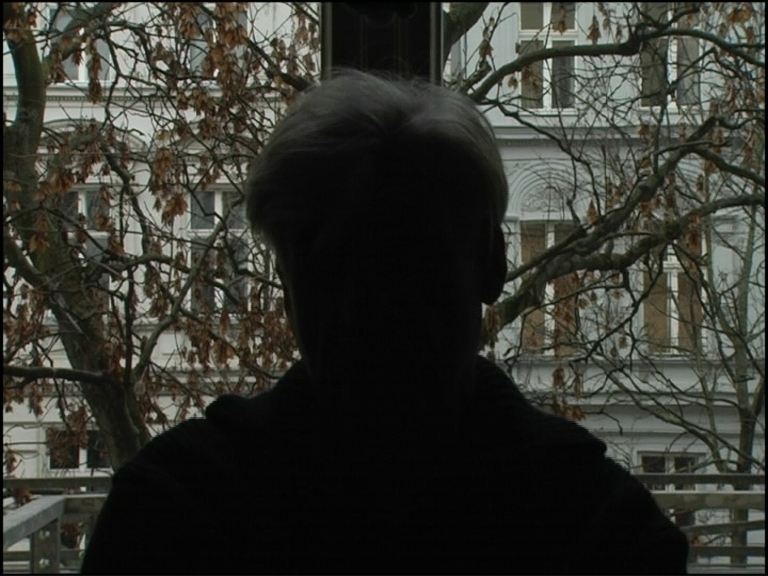
- "Sara the Dancer" D: Tim Ellrich, CI: Images out of Google Street View, ED: Maximilian Merth, Andreas Ribarits, DE/AT 2017, 12’30”
Sara is not a woman, she is a device: a Google Street View camera, who photographs streets from the top of a car. But when she listens to the music of driver Larry for the first time, something starts to shake in her. Deeply unsettled by this behaviour, she searches for help with the common Google Search. Google, which just wants the best for its users, only strengthens her desire. Quickly, this leads to an existential conflict with the actual camera use.
read more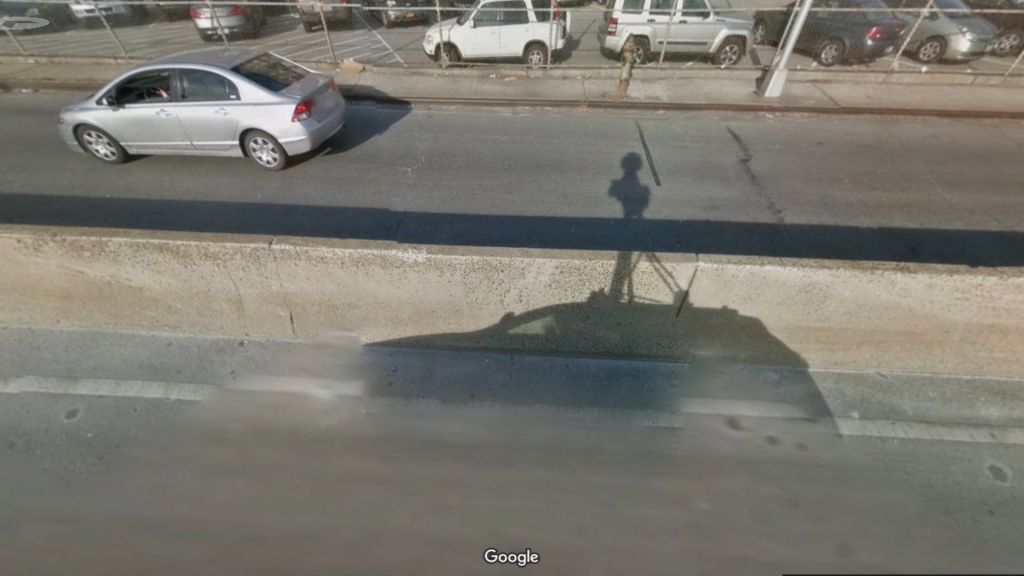
- "Simba in New York" D, CI: Tobias Sauer, ED: Daniel Maaß, DE 2016, 31'
Walt Disney died 50 years ago. But to this day, millions of children grow up with the films he produced. The legendary director is still seen as the embodiment of the American Dream. A student writing his bachelor thesis remembers his childhood fascination with the USA. He lost his mother at an early age and always identified with Disney's orphan characters. But by now, a different kind of film has caught his attention: amateur films, “home movies.” He seeks the “real” America in these images. The film is an amazing essayistic “stream of consciousness.”
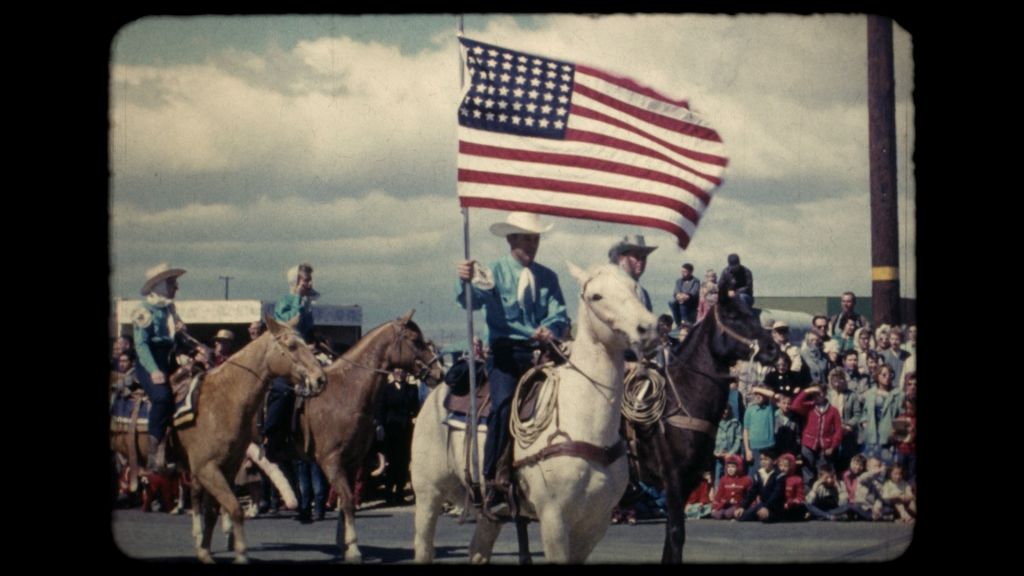
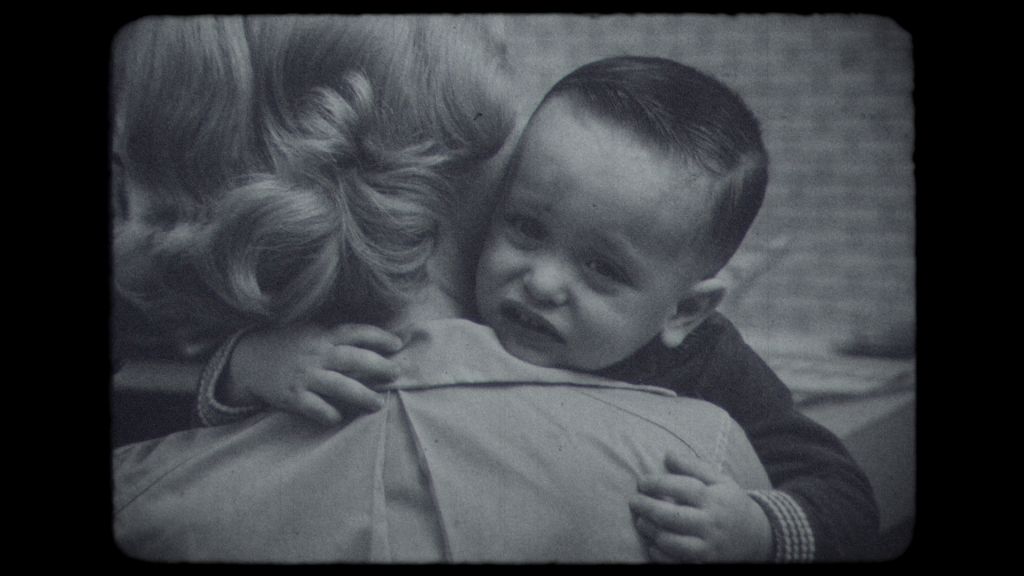
read more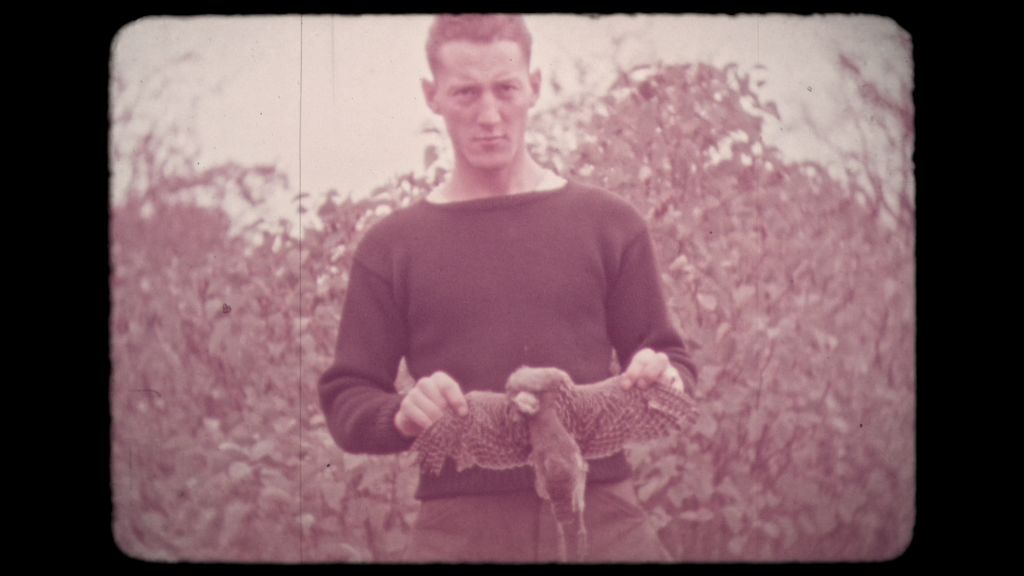
- "stranding" D, CI, ED: Nina Schipoff , CH 2016, 4’36”
Greece, the Ionion Sea; abandoned to the mood of the sea, you are drifting towards the shore of the uninhabited island of Zeus. Nina Schipoff's film features beautiful, realistic shots of see depths that make the viewer feel as if they're in the ocean themselves. Without the use of words, “stranding” makes one deeply reflect upon the two worlds – one of water and one of land. How can we establish a border between them?
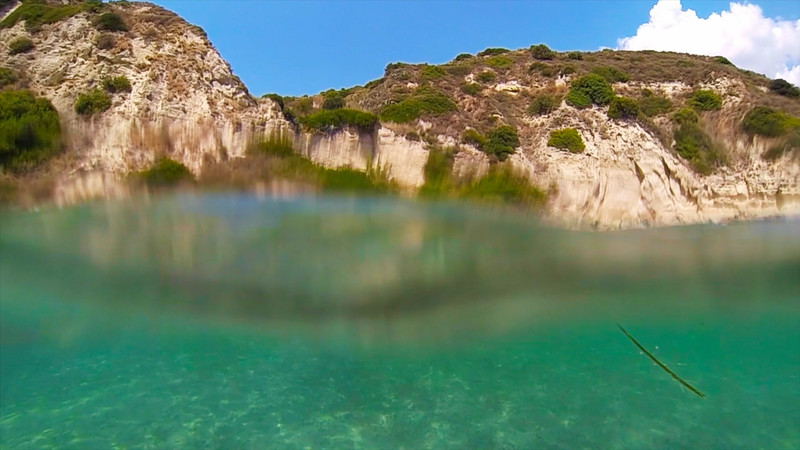
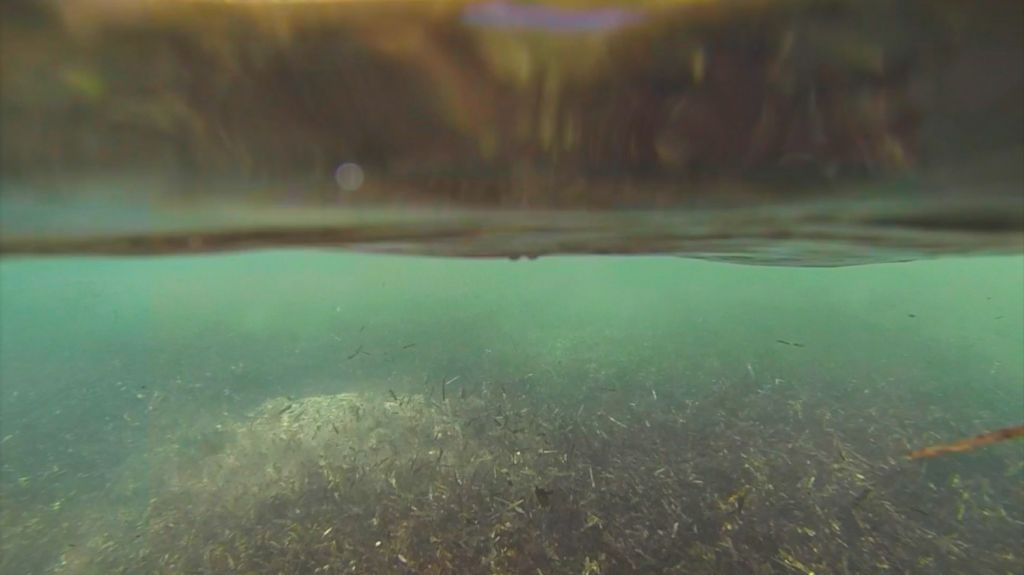
read more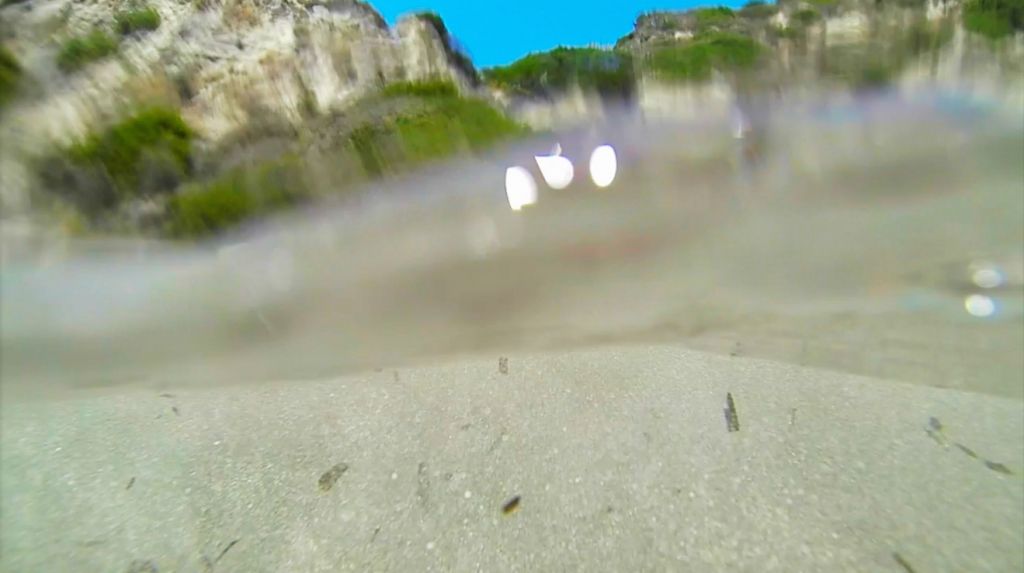
- "Thea" D: Halvor Nitteberg, CI: Øystein Mamen, ED: Anette Stålem Flittig, Elisabeth Aspelin, NO 2016, 13’31”
Thea is 12 years old. She likes to play football and to be with her friends. But why does she want to grow up to be an air ambulance pilot? Thea has a serious and dramatic type of epilepsy, but in this film she shares her thoughts about the things that she enjoys in her life. We follow Thea and her parents through a long hospital stay one winter, followed by her homecoming. At the hospital there is a school. During woodwork class she makes a gift for someone very special to her.
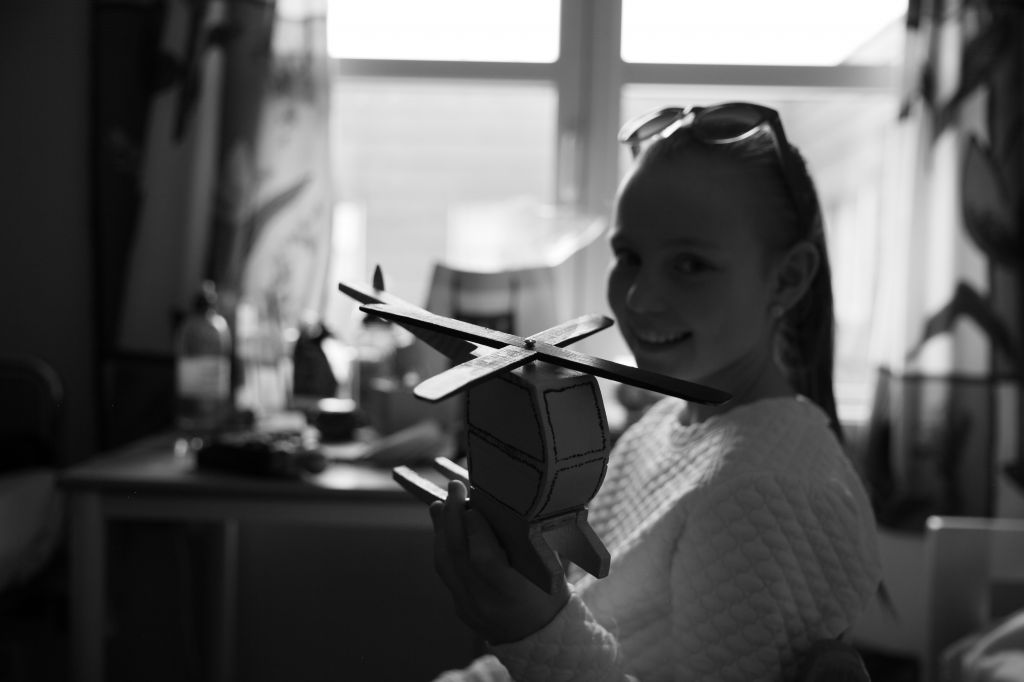
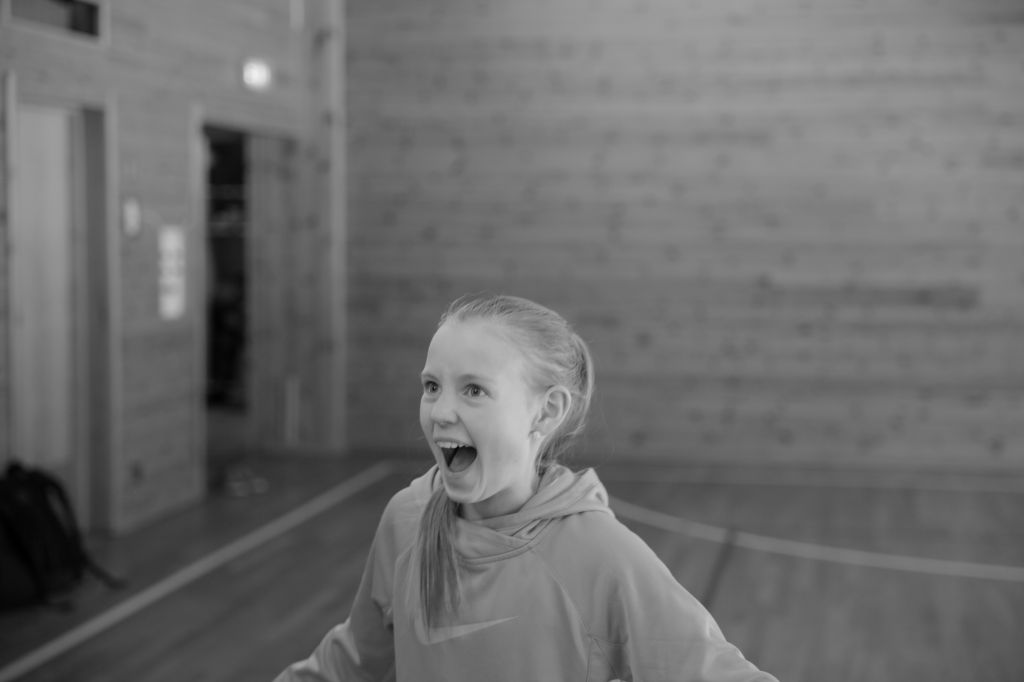
read more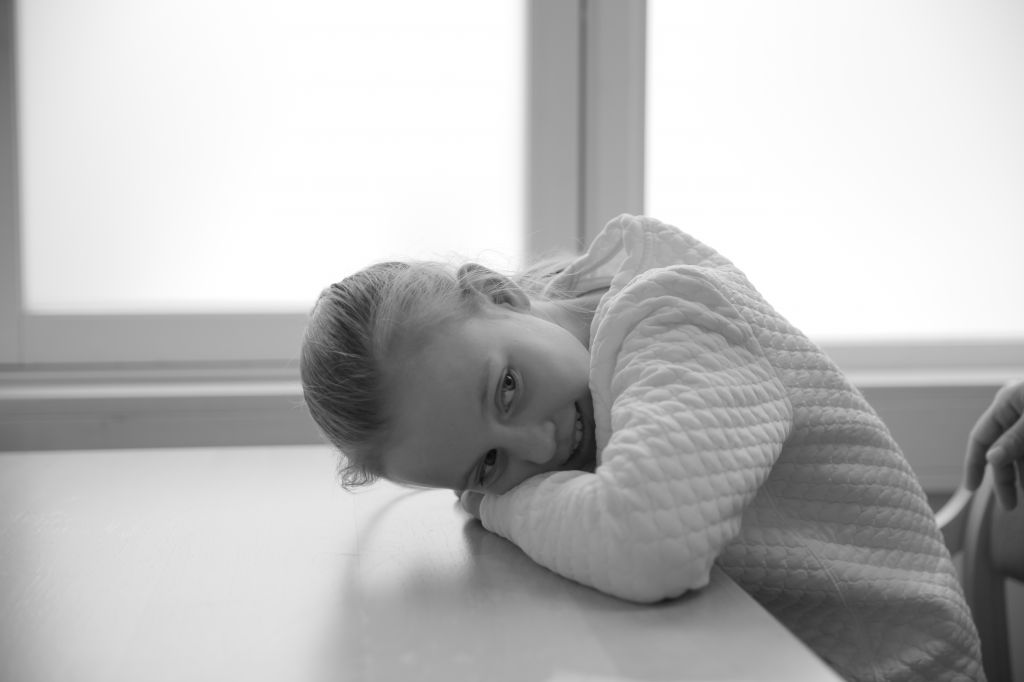
- "Ur Artean" D: Iñigo Jiménez, Jesus Maria Palacios, CI: Jesus Maria Palacios, David Aguilar, ED: Ibai Elorza, Zazpi T’Erdi, Jesus Maria Palacios, ES 2016, 27’
A portrait of the last inhabitants of the Santa Clara island in San Sebastian. In September 2014, the Santa Clara lighthouse celebrated its 150th anniversary, yet for the last 45 of these years it has been uninhabited. Who were the last people to live there? For twenty years, the lighthouse-keeper José Manuel Andoin and his mother, María Torralbo, dwelled in isolation and harsh conditions on this island just 500 meters off the city of San Sebastian. “Ur Artean” is the story of the enigmatic relationship between a strong-willed mother and her mild-mannered son, who had been an Olympic champion
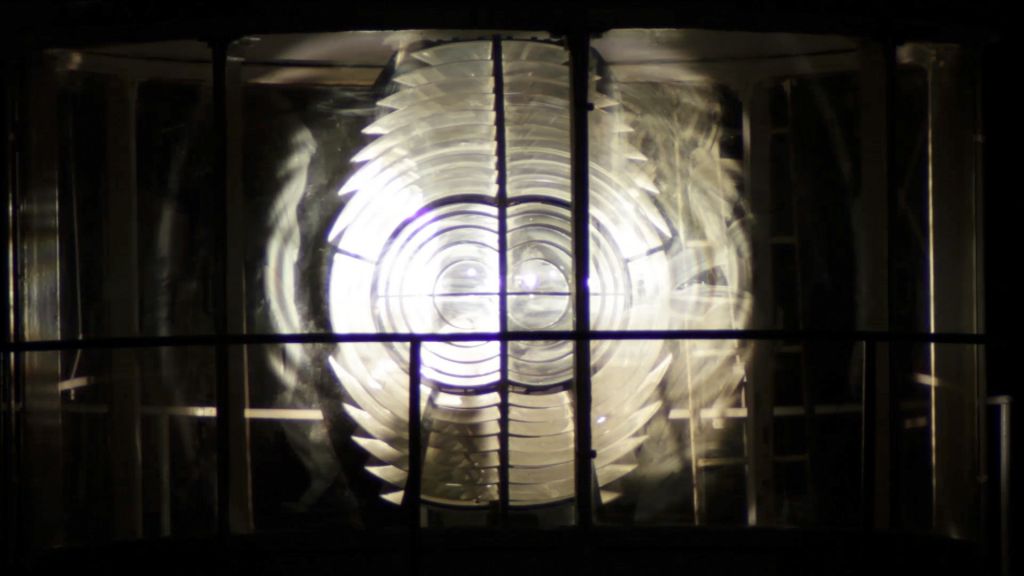
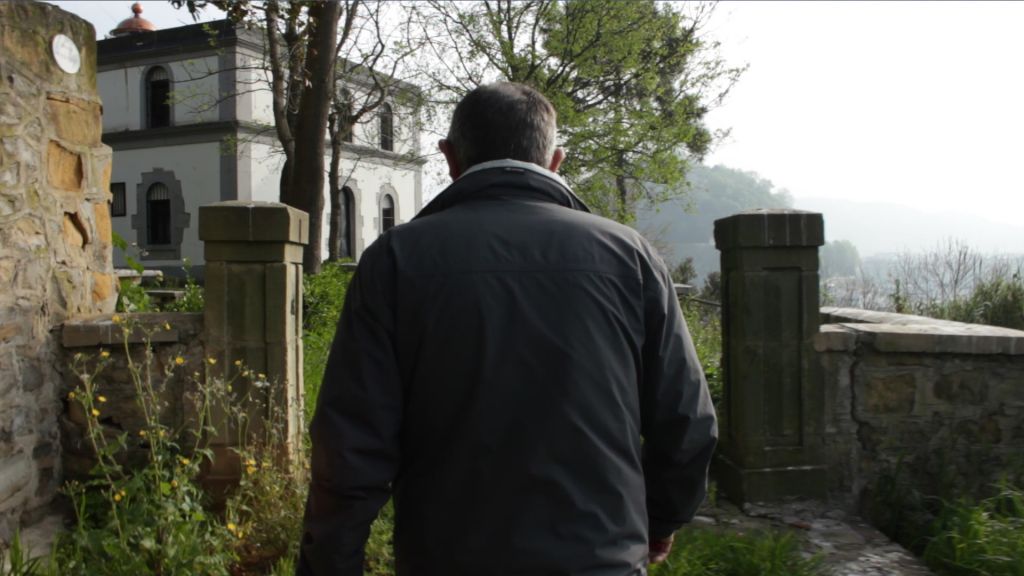
read more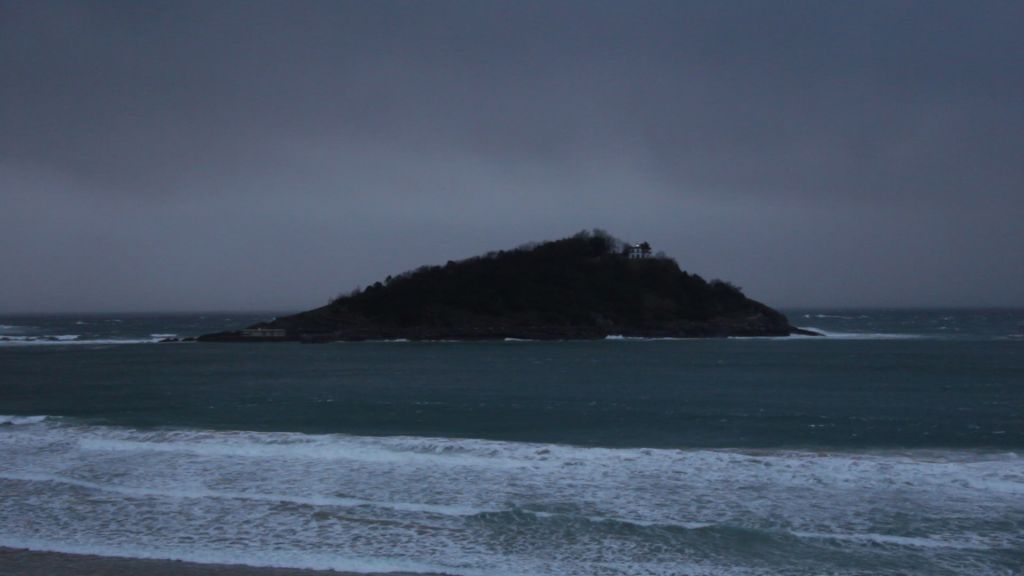
- "White Mountain" D, ED: Emma Charles, CI: Emile Kelly, GB 2016, 20'
The film is set in the Pionen data centre, a former Cold War era civil defence bunker buried 30 metres underground in Stockholm, currently housing servers for clients that once included Wikileaks and The PirateBay. Part Bond villain lair, part retro-futuristic spaceship, the 16mm film plays on this science fiction aesthetic. As the camera idles on the florescent-lit server stacks, issues of privacy, surveillance, and digital sovereignty inevitably emanate.
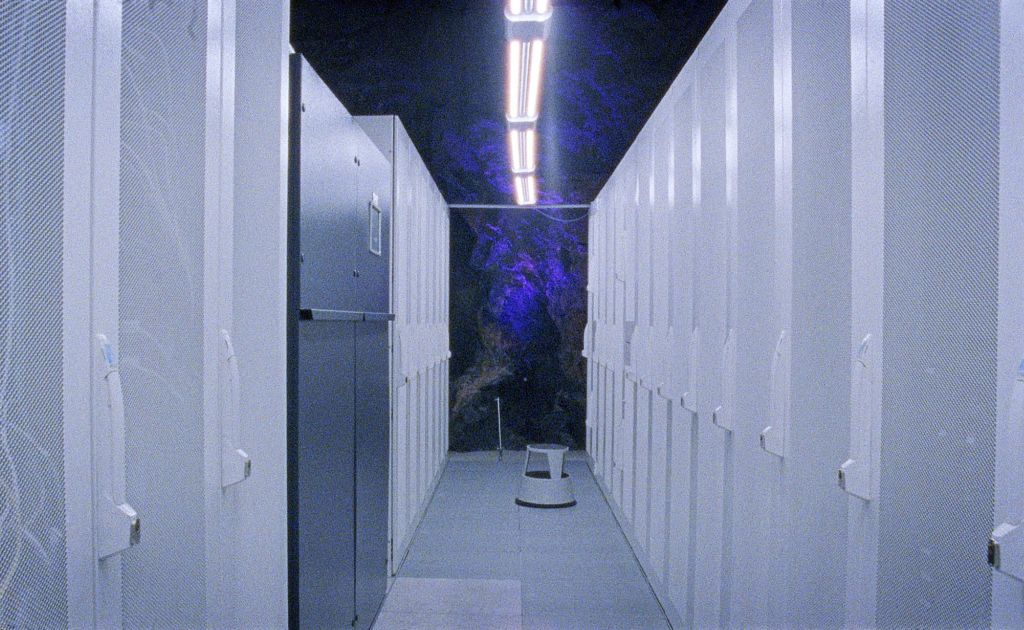
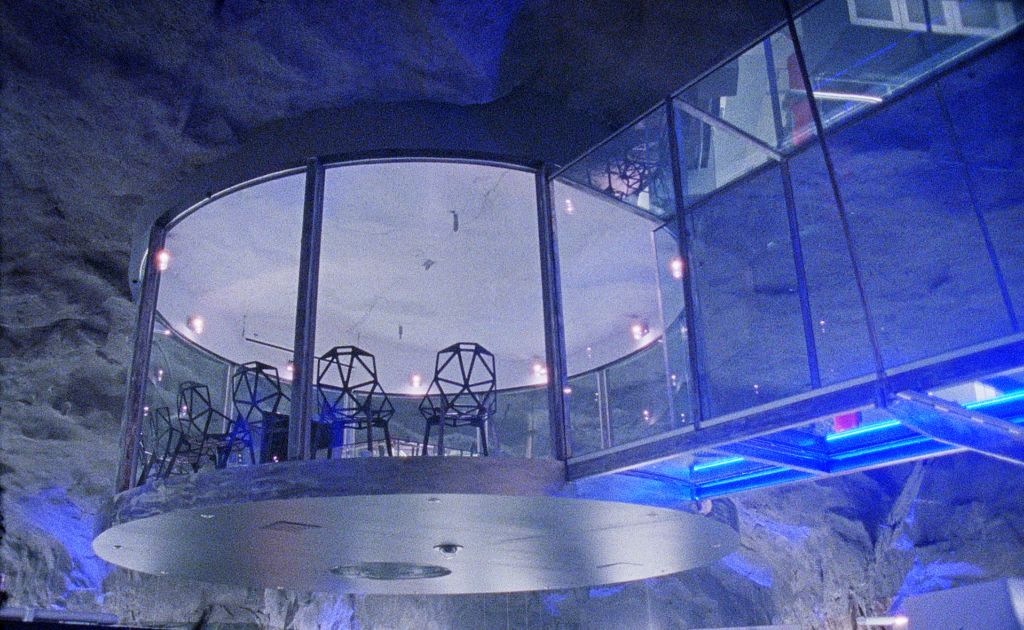
read more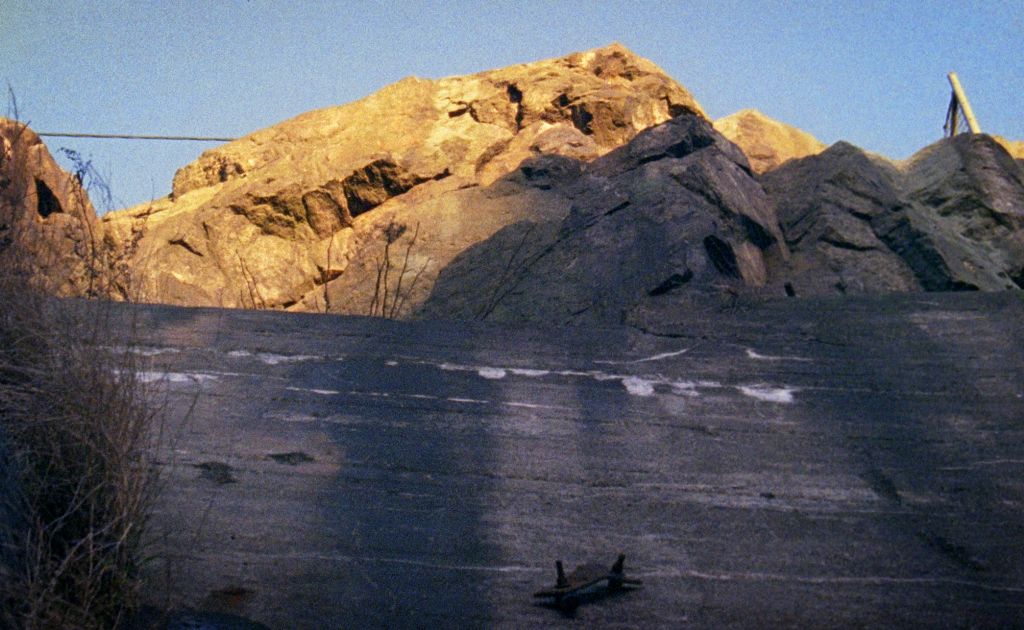
- "Zamejen" D: Leo Černic, CI: Rok Kajzer Nagode, ED: Jakob Hreščak, AN: Leo Černic, Martin Emeršič, SI 2016, 20'21"
„I am bordered, you are bordered, we are all bordered. It sounds like a children's song. But it is not. Ciao, I am Leo, nice to meet you!” This incredibly interesting and creative Slovenian documentary directed by Leo Černic talks about the crossing of boundaries and barriers which limit and enslave us.
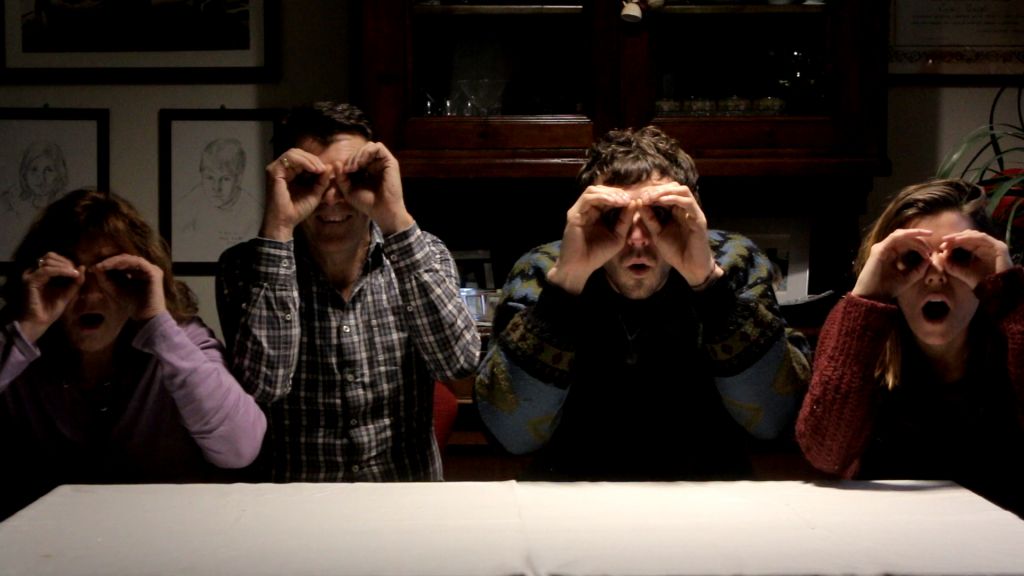
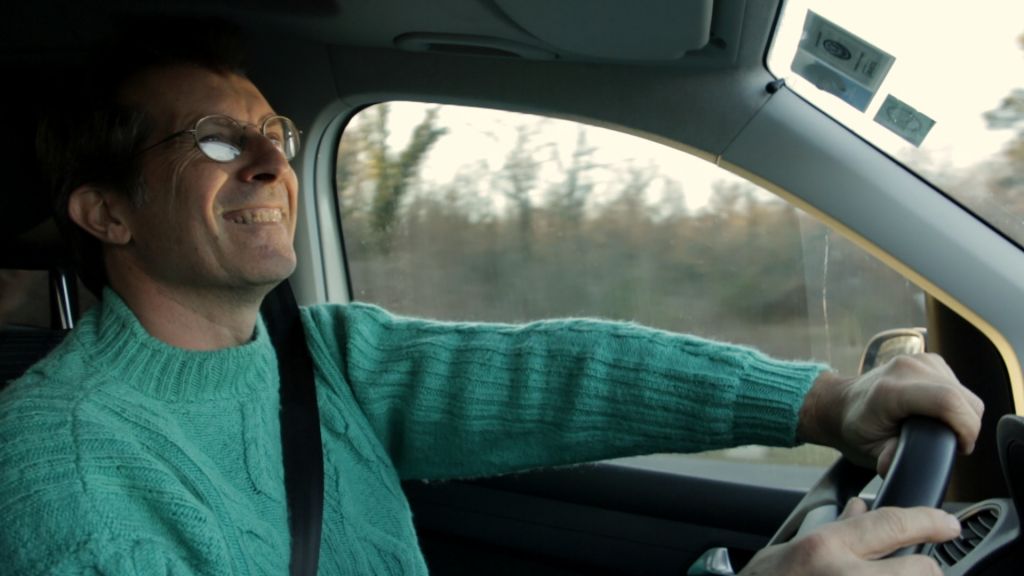
read more